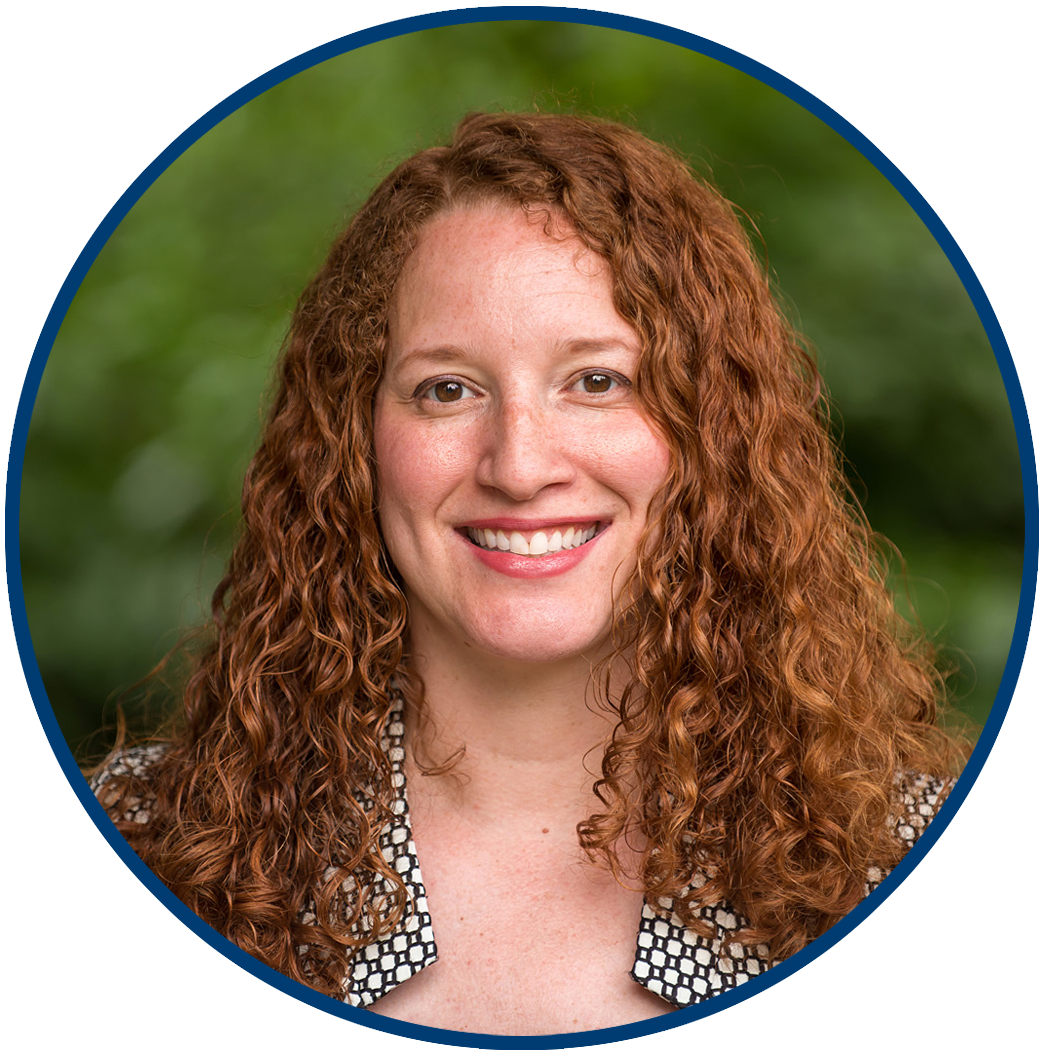Digital Innovation in Education Conference 2025
Overview
Ontario Tech University’s Mitch & Leslie Frazer Faculty of Education and the Centre for Digital Innovation in Education (CDIE) are pleased to host the Digital Innovation in Education Conference 2025. The conference is for professors, teachers, board innovators, librarians, administrators, and keen education students who want to share and learn about pedagogical innovation, structural innovation, digital innovation, and teaching for innovation. Over two days, participants will have the opportunity to actively learn through:
- Round table discussions,
- Research presentations and demonstrations, and
- Poster presentations.
Dates
- Friday, April 04, 2025, from 8:30 a.m. to 5 p.m. (EST)
- Evening Speaker: Nora Young, 7 p.m. to 8 p.m
- Saturday, April 05, 2025, from 8:30 a.m. to 5 p.m. (EST)
Location
- 61 Charles St, Oshawa, ON L1H 4X8 and online.
Benefits
- Both in-person and online opportunities
- Event attendees receive a certificate of participation
- Access to select presenter articles and resources through the Journal of Digital Life & Learning
Key Areas of Focus
Our presenters and workshop guides will share their insight into a wide range of topics, with each aligning with the following themes:
- Pedagogical Innovation: Such as inquiry, play, discovery, making, and design thinking. Or innovation in experiential, project-based, and problem-finding/solving types of learning.
- Structural Innovation: Such as learning spaces reimagined, makerspaces, living labs, and experimental classrooms. Or, hyFlex, blended/hybrid, and virtual labs experiences.
- Digital Innovation: Such as artificial Intelligence, augmented/virtual/mixed realities, wearables/ biometrics, and smart devices (Internet of Things), and assistive technologies.
- Teaching for Innovation: Such as developing innovation skills and mindsets in Kindergarten to adult education—including teacher education and the creation of module/online resources.
Keynote Speaker
Nora Young
The Coming AI Revolution: Opportunity, Ethics, and Understanding in our Machine Learning Future
 Recent explosive developments in Generative AI promise a new era of human-machine collaboration, and spark fears of AI-generated misinformation, and job loss. But Gen AI is just the most high-profile example of massive growth in data-driven machine learning. In this talk, Nora lays out the leading trends in the field and explores the opportunities AI presents for educators and society as a whole—provided we can address the political, creative, and ethical challenges it raises.
Recent explosive developments in Generative AI promise a new era of human-machine collaboration, and spark fears of AI-generated misinformation, and job loss. But Gen AI is just the most high-profile example of massive growth in data-driven machine learning. In this talk, Nora lays out the leading trends in the field and explores the opportunities AI presents for educators and society as a whole—provided we can address the political, creative, and ethical challenges it raises.
- Bio: Nora Young is an informed and ideal guide for anyone looking to understand—and plan for—the ever-changing, high-tech landscape and its social impacts. For 17 seasons, she was the host of CBC’s award-winning national radio show and podcast Spark, which explored technology and culture, and is the author of The Virtual Self. Her work with CBC now focuses on disinformation and the rapidly evolving AI landscape. As a keynote speaker, Young demystifies technology and explores how it’s shaping and impacting our lives and the larger world around us. Young was the founding host of CBC Radio’s Definitely Not the Opera, where she often discussed topics related to new media and technology. Her work has been featured in print, online, television, and as a committed hobby podcaster. She currently sits on the board of Farm Radio International, which supports rural broadcasters making interactive radio programs.
- Themes: Digital Innovation
- Audience & Subject: General Audience
- Date & Time: Friday, April 4, 2025 from 7:00 pm - 8:00 pm
Featured Speakers
Dr. Peter Lewis
Learning and Researching with Artificial Intelligence: Engaging Critically as Individuals and Society

In this talk, I will cover 'the Good, the Bad, and the Ugly' of today's AI tools and discuss some advice for educators and society at large in navigating the AI landscape and deciding if and how to use AI in a formal learning environment. I will share examples of the latest generation of AI tools and their potential use within educational and research contexts. I will also cover some promising accessible use cases, advice for effective use, and some gotchas. Together, we will explore how we might want to think critically about using AI tools and how they might work based on practical insight and recent research.
- Bio: Dr. Peter Lewis holds a Canada Research Chair in 'Trustworthy Artificial Intelligence' at Ontario Tech University, where he is an Associate Professor and leads the Trustworthy AI Lab. He is also Associate Dean, Research & Graduate Studies, for the Faculty of Business and Information Technology. His research explores and advances the trustworthiness, self-awareness, social intelligence, and accessibility of AI systems. Drawing on extensive experience applying AI commercially, he is interested in where AI meets society, and how that relationship can work well. He holds leadership roles in various international research communities, including being Associate Editor of IEEE Technology & Society Magazine.
- Areas of Expertise: Artificial intelligence Big Data Computers Information technology Robotics Technology
- Themes: Digital Innovation, Teaching for Innovation
- Audience & Subject: General Audience
- Date & Time: Friday, April 4, 2025 from 9:00 am - 10:00 am
Dr. Amanda Cooper
Artificial Intelligence in Education: Exploring the Good, the Bad and the Unknown
The education sector is navigating a rapidly evolving landscape as Artificial Intelligence (AI) continues to shape teaching, learning, and educational governance. In this featured keynote, Dr. Cooper examines AI in education from a whole-systems perspective, offering an overview of emerging global research, an examination of Pan-Canadian policy with a particular focus on K-12 school districts in Ontario, and a discussion of the practical implications for educational leaders and teachers. Additionally, she considers the potential role of educational intermediaries in bridging the gap between policy and practice. The paper concludes with recommendations for future directions, emphasizing the need for informed policy development, professional capacity-building, and equitable AI implementation.
- Bio: Dr. Cooper is a Professor and Dean of the Mitch and Leslie Frazer Faculty of Education at Ontario Tech University. Her passion is chasing the ever-illusive research impact alongside diverse partners to improve classrooms and schools for students, teachers, principals, and communities. She founded the innovative research program RIPPLE (Research Informing Policy, Practice, and Leadership in Education) which aims to accelerate research impact in public service sectors via multi-partnership networks. Dr. Cooper works with schools and community organizations to increase the use of research evidence in public service sectors to improve teaching and learning. Her most recent line of inquiry explores the promises and pitfalls of leveraging Artificial Intelligence in K-12 and higher education sectors.
- Themes: Structural Innovation, Digital Innovation
- Audience & Subject: General Audience
- Date & Time: Friday, April 4, 2025 from 1:15 pm - 2:15 pm
Stéphan Vincent-Lancrin
Towards a digital transformation in education: AI opportunities and challenges
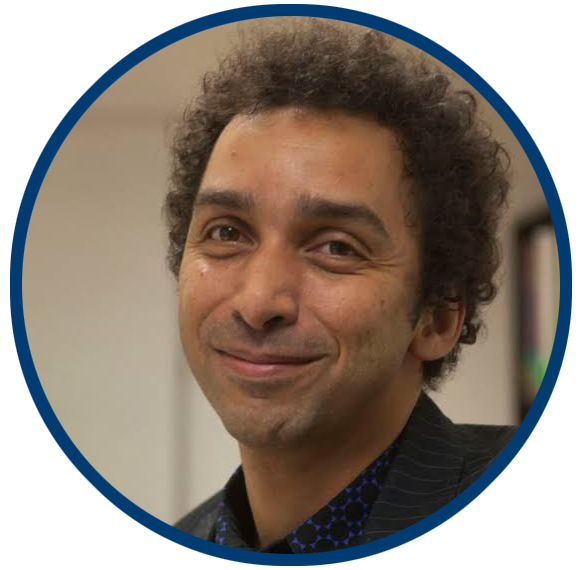 Stéphan will talk about the state of digital transformation in OECD countries with a focus on AI. Building on OECD Digital Education Outlooks 2021 and 2023 as well as his other work on innovation in education, he will reflect on the current state of digitalization: what digital AI tools might bring to education, what we know about the level of adoption within countries, some of the challenges that countries are talking about, etc. He will then reflect on generative AI specifically and where some of its opportunities and challenges lie for different types of educational processes and outcomes. He will eventually highlight some OECD guidelines on the effective and equitable use of AI in education and invite some ideas for upcoming guidelines on generative AI.
Stéphan will talk about the state of digital transformation in OECD countries with a focus on AI. Building on OECD Digital Education Outlooks 2021 and 2023 as well as his other work on innovation in education, he will reflect on the current state of digitalization: what digital AI tools might bring to education, what we know about the level of adoption within countries, some of the challenges that countries are talking about, etc. He will then reflect on generative AI specifically and where some of its opportunities and challenges lie for different types of educational processes and outcomes. He will eventually highlight some OECD guidelines on the effective and equitable use of AI in education and invite some ideas for upcoming guidelines on generative AI.
- Bio: Stéphan Vincent-Lancrin, PhD, is a Senior Analyst and Deputy Head of Division at the Organisation for Economic Co-operation and Development (Directorate for Education and Skills). He currently leads work on education during the covid-19 crisis, as well as the OECD work on the digitalization in education, notably the project on “Smart data and digital technology in education: AI, learning analytics and beyond”. He also leads work around disciplined innovation and change management, showing with the work on “Fostering and Assessing Creativity and Critical Thinking in Education” what kind of support, environment and tools school teachers and university professors could be given to improve their teaching and their students’ learning. An example of capacity development through international professional learning communities. More generally, speaking he works on innovation, research and how new trends influence the futures of learning and education policy at the schooling and higher education levels. Source: www.oecd.org
- Themes: Structural Innovation, Digital Innovation, Pedagogical Innovation
- Audience & Subject: General Audience
- Date & Time: Saturday, April 5, 2025 from 9:00 am - 10:00 am
Dr. Laura Morrison
What’s in a Process: AI Ethics, Cognitive Offloading and What Makes us Human

This featured presentation will explore the double-edged sword of AI in education, focusing on both the transformative potential of incorporating AI into the teaching and learning process and the serious ethical concerns that need to be mitigated in the process, specifically related to the issue of cognitive offloading. Strategies for mitigating these challenges will be discussed with an emphasis on the importance of embedding AI literacy in curricula to empower students with the critical and creative skills needed to navigate, evaluate, and utilize AI responsibly. AI is not new in society, and many of the ethical implications that are now more noticeable have existed long before the emergence of GAI. GAI is amplifying the conversation around the critical and ethical implications of AI in society and what a future world might look like. How do we continue to cultivate meaning and agency in a GAI infused world?
- Bio: Dr Laura Morrison is an Assistant Professor in the Mitch and Leslie Frazer Faculty of Education at Ontario Tech U. Her research explores innovative educational structures and emerging technologies to create more accessible, equitable and inclusive learning environments. The goal is to help students develop the skills they need to navigate and engage with the world effectively, critically and meaningfully. Specifically, her work focuses on developing students’ critical digital literacies skills, identifying promising practices for online and hybrid-flexible (HyFlex) teaching and learning, and using “making” and culturally sustaining pedagogies to foster inclusion. Her current research investigates AI literacy and ethics in education.
- Themes: Structural Innovation, Digital Innovation
- Audience & Subject: General Audience
- Date & Time: Saturday, April 5, 2025 from 1:00 pm - 2:00 pm
Presentation Descriptions and Bios
⮦ Click on the presentation title to expand the description and learn more about each presentation and presenter.
Day 1 - Friday, April 4, 2025 - Morning Sessions
- Navigating play in virtual learning environments: Kindergarten teachers’ accounts from the pandemic era
- Exploring Synergy Between Asynchronous Online Discussions and Online Peer-Assessment: A Case Study
- Democratizing Learning and Teaching with Presentria GO: Canada's First Location-Based Experiential Learning EdTech Tool
- Mentors in the Machine: AI Chatbots as Tools for Cultivating Critical Digital Literacies
- A Field Trip to the Impossible: A Case Study of Immersive Virtual Reality in Education
- Making a Difference: Using Maker Pedagogy to Support Assistive Technology Users
- AI Chatbots & Social and Emotional Learning: Transforming Language Learning
- Serious Games Develop Savvy Leaders
- Lessons Learned: How to Design & Evaluate Cost-Accessible Coding Games for Children
- Beyond ChatGPT: Driving Digital Innovation with GPTs in Post-Secondary Education
- Generative AI in Education: Insights from Standardized Testing Comparisons
- Using Learning Apps to Work Smarter, Not Harder
- Navigating the AI Landscape in Higher Education: Insights from a National Study
Navigating play in virtual learning environments: Kindergarten teachers’ accounts from the pandemic era
Virtual learning environments present unique needs for kindergarten educators. In this session, we will address policy alongside strategies to support educator agency and implementation of play-based pedagogies in virtual settings.
Join the conversation as we explore how kindergarten and early elementary educators navigate challenges with resilience and creativity while advocating for and implementing play-based pedagogies effectively in virtual learning environments. I invite folks to engage in open dialogue as well as digital tools (i.e. Menti) as we explore the possibilities of kindergarten virtual learning environments.
- Time: 10:00 am - 10:30 am
- Format: Presentation
- Themes: Pedagogical Innovation, Teaching for Innovation
- Audience & Subject: This session explores the storied experiences of kindergarten educators as they navigated play-based pedagogies in virtual learning environments.
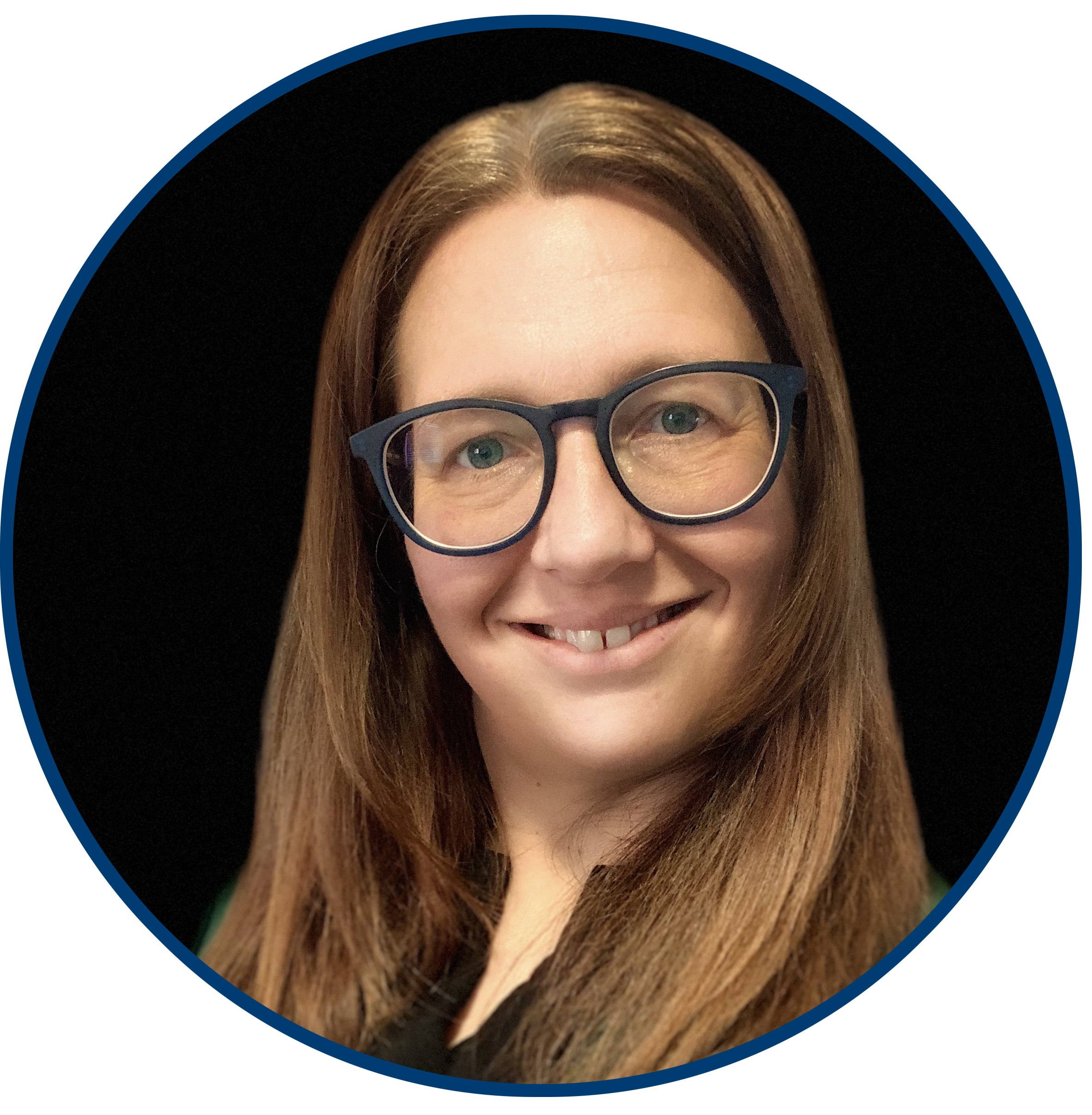 Melissa Bishop, PhD, is an Assistant Professor in the School of Education and Health at Cape Breton University. Her research explores professional development and educator agency, with a particular focus on early childhood educators and elementary teachers through the lenses of multiliteracies, narrative inquiry, and feminist standpoint theory. With over two decades of experience across K-12 and post-secondary education, she brings a deep understanding of the complexities of teaching and learning in diverse educational contexts. Her work contributes to ongoing discussions on educator identity, professional autonomy, and innovative pedagogical approaches.
Melissa Bishop, PhD, is an Assistant Professor in the School of Education and Health at Cape Breton University. Her research explores professional development and educator agency, with a particular focus on early childhood educators and elementary teachers through the lenses of multiliteracies, narrative inquiry, and feminist standpoint theory. With over two decades of experience across K-12 and post-secondary education, she brings a deep understanding of the complexities of teaching and learning in diverse educational contexts. Her work contributes to ongoing discussions on educator identity, professional autonomy, and innovative pedagogical approaches.
Exploring Synergy Between Asynchronous Online Discussions and Online Peer-Assessment: A Case Study
- Time: 10:00 am - 10:30 am
- Format: Presentation
- Themes: Teaching for Innovation
- Audience & Subject: Adult educators looking to use purposeful, authentic, formative, and scored assessment practices that enhance learning achievement and recognize the time constraints of educators.
 Chris D. Craig is passionate about education and has diverse life experiences outside of academia, which include the arts, business, construction, entertainment, and health. With a focus on adult education, he aims to establish and promote actionable insight for educators and students alike with the vision of supporting learner self-concept: Who they are in the environment context. Chris is a geek with a diverse educational background—Ed.D.(c), M.Ed., B.A., A.S.-PE., post-secondary certificates in art and business, and professional fitness and project management certifications.
Chris D. Craig is passionate about education and has diverse life experiences outside of academia, which include the arts, business, construction, entertainment, and health. With a focus on adult education, he aims to establish and promote actionable insight for educators and students alike with the vision of supporting learner self-concept: Who they are in the environment context. Chris is a geek with a diverse educational background—Ed.D.(c), M.Ed., B.A., A.S.-PE., post-secondary certificates in art and business, and professional fitness and project management certifications.
 Dr. Robin Kay is a Full Professor in the Faculty of Education at Ontario Tech University in Oshawa, Canada. He has published over 200 articles, chapters, and conference papers in the area of pedagogy, education, and technology. He has taught computer science, mathematics, and educational technology for over 30 years at the high school, college, undergraduate and graduate levels. Current projects include research on AI in education, e-learning tools, online and blended learning in secondary and higher education, video podcasts, scale development, emotions and the use of computers, and factors that influence how students learn with technology.
Dr. Robin Kay is a Full Professor in the Faculty of Education at Ontario Tech University in Oshawa, Canada. He has published over 200 articles, chapters, and conference papers in the area of pedagogy, education, and technology. He has taught computer science, mathematics, and educational technology for over 30 years at the high school, college, undergraduate and graduate levels. Current projects include research on AI in education, e-learning tools, online and blended learning in secondary and higher education, video podcasts, scale development, emotions and the use of computers, and factors that influence how students learn with technology.
Democratizing Learning and Teaching with Presentria GO: Canada's First Location-Based Experiential Learning EdTech Tool
Frustrated by the limitations of Menti and Kahoot!? Looking to extend teaching and learning beyond the classroom? Discover Presentria GO, one of Canada’s Top 10 Student Engagement Tools, and make learning more engaging and relevant for your students!
Struggling to engage HyFlex students? Few online students responding? In-class students multitasking on their phones? Need to make your 3-hour lecture bearable? Presentria GO makes learning interactive and engaging, wherever your students are.
Participants will watch videos and share insights via online polls. They'll also experience Canada’s first location-based experiential EdTech tool, Presentria GO, on their smartphones and collaborate to design a trip.
- Time: 10:00 am - 10:30 am
- Format: Presentation
- Theme: Pedagogical Innovation
- Audience & Subject: University and college professors, along with EdTech enthusiasts, will benefit most from this presentation. They should attend to discover how Presentria GO can transform teaching by making learning engaging and interactive through location-based experiential methods.
 Dr. Ken Kwong-Kay Wong is a Marketing Professor at Seneca Polytechnic and a leader in digital learning solutions. He founded Presentria to enhance inclusive education using Artificial Intelligence, location-based services, and advanced technologies. His EdTech was named a Top 10 Student Engagement Solution in Canada by Education Technology Insights. He received the 2020 Minister of Colleges and Universities' Award of Excellence for his contributions during the pandemic and the 2023 FCAD Spotlight Award at Seneca. With over 22 years in higher education, he has also served as a visiting professor at top “Triple Crown” accredited universities, specializing in AI, Industry 5.0, marketing, and data visualization.
Dr. Ken Kwong-Kay Wong is a Marketing Professor at Seneca Polytechnic and a leader in digital learning solutions. He founded Presentria to enhance inclusive education using Artificial Intelligence, location-based services, and advanced technologies. His EdTech was named a Top 10 Student Engagement Solution in Canada by Education Technology Insights. He received the 2020 Minister of Colleges and Universities' Award of Excellence for his contributions during the pandemic and the 2023 FCAD Spotlight Award at Seneca. With over 22 years in higher education, he has also served as a visiting professor at top “Triple Crown” accredited universities, specializing in AI, Industry 5.0, marketing, and data visualization.
Ken co-authored the thought-provoking article “Enabling In-Car Location-Based Experiential Learning with Presentria GO,” published in the International Journal of Mobile Learning and Organisation. He has been interviewed by EdTech TV, and his EdTech solutions have been featured in Contact North and Education Technology Insights.
Mentors in the Machine: AI Chatbots as Tools for Cultivating Critical Digital Literacies
Attendees will gain practical strategies for integrating AI chatbots into education, enhancing digital literacy, and addressing ethical AI use. This session equips educators with tools to foster critical thinking and personalized learning in AI-driven environments.
Discover how AI chatbots can act as digital mentors, fostering critical thinking and ethical AI use. Gain hands-on strategies, real-world examples, and practical tools to enhance learning, engagement, and digital literacy in any classroom.
- Time: 10:00 am - 10:30 am
- Format: Presentation
- Theme: Digital Innovation
- Audience & Subject: Educators, administrators, and policymakers will gain cutting-edge strategies to integrate AI chatbots into education. Learn how to enhance student engagement, build digital literacy, and tackle ethical AI challenges with practical, ready-to-use tools.
 Joycelyn Kelly, M.Ed., is a program instructor in the Artificial Intelligence in Teaching and Learning program at Ontario Tech University, where she specializes in integrating AI technologies to enhance teaching, learning, and professional development. With over 15 years of experience in program instruction, corporate training, and career development, Joycelyn is passionate about leveraging AI tools, such as chatbots, to cultivate critical digital literacies in educational and professional settings.
Joycelyn Kelly, M.Ed., is a program instructor in the Artificial Intelligence in Teaching and Learning program at Ontario Tech University, where she specializes in integrating AI technologies to enhance teaching, learning, and professional development. With over 15 years of experience in program instruction, corporate training, and career development, Joycelyn is passionate about leveraging AI tools, such as chatbots, to cultivate critical digital literacies in educational and professional settings.
Joycelyn holds a Master of Education (MEd) degree from Ontario Tech University and a BA (Hons) undergraduate degree in Educational Studies & Digital Technology specializing in Adult Education. She also holds an Advanced Diploma in Business Administration Marketing from Centennial College and is a certified Life Skills Coach from the YWCA, reflecting her commitment to holistic student development. Joycelyn designs AI chatbots to enhance learning, professional practice, and workforce upskilling, equipping learners with essential AI literacy skills.
A Field Trip to the Impossible: A Case Study of Immersive Virtual Reality in Education
IVR's potential extends beyond engagement—it creates safe environments for experiential learning, and allows students to interact with complex concepts in ways that traditional methods cannot replicate. For educators, IVR provides opportunities to design immersive, student-centered lessons. By the end of this session, participants will gain a deeper understanding of how IVR can transform the classroom, offering students meaningful, immersive learning experiences that were once… impossible.
Through screen recordings and user experiences from IVR application, this session will explore the pedagogical potential of IVR, and will demonstrate how virtual field trips and simulations can enhance student learning in meaningful ways. We will: (1) showcase a variety of IVR applications that align with K-12 curriculum goals, (2) examine the cognitive and emotional impact of IVR-based learning experiences and (3) discuss practical strategies for integrating IVR in classrooms, including accessibility, cost considerations, connections across distances, and pedagogical best practices.
Participants will enjoy live demonstrations of IVR environments, and will be able to ask presenters to visit specific geographical locations of their choice -- anywhere in the world!
- Time: 10:30 am - 11:00 am
- Format: Presentation
- Theme: Teaching for Innovation
- Audience & Subject: This presentation will be valuable for K-12 educators, curriculum designers, education policymakers, and researchers interested in digital innovation via Immersive Virtual Reality.

Dr. Sharon Lauricella is a full professor at Ontario Tech, and is cross-appointed between the Faculty of Education and Faculty of Social Science. Sharon holds a doctoral degree from the University of Cambridge (UK) and a Certificate in Higher Education Teaching from the Derek Bok Center for Teaching and Learning at Harvard University. Her research focuses on teaching with technology, mental health of undergraduate students, and the value of fun and play in higher education.

Benjamin D. Fedoruk is an M.Ed. student at Ontario Tech University with a B.Sc. in Applied and Industrial Mathematics. He works for Ontario Tech University as a Subject Specialist in Mathematics. His academic interests include the use of AI in education and alternative models for higher level mathematics education.
 Dan Allen is the Board Math Lead for the Durham Catholic District School Board. His system-level work focuses on professional learning for educators, administrators, senior administration, and families. In his 24th year in education, he has been a classroom teacher, a curriculum consultant, a secondary vice principal and principal and loves to learn with others. He is currently completing his Master's of Education through Ontario Tech University.
Dan Allen is the Board Math Lead for the Durham Catholic District School Board. His system-level work focuses on professional learning for educators, administrators, senior administration, and families. In his 24th year in education, he has been a classroom teacher, a curriculum consultant, a secondary vice principal and principal and loves to learn with others. He is currently completing his Master's of Education through Ontario Tech University.
 Sonia Zadra (M.Ed.) is a Grade 6 Core French teacher at Dixon Grove JMS in the Toronto District School Board (TDSB). She has 23 years of classroom teaching experience. Sonia studied French and Italian linguistics and literature at the University of Toronto, so it's no wonder she loves teaching French. She began her graduate studies at Ontario Tech University (OTU) during the pandemic, studying part-time while working full-time. Sonia has just completed her final course toward a Master of Education at OTU and will be graduating in June 2025. For over two decades, she has been passionate about second language acquisition and elementary education. After graduation, she hopes to continue her lifelong learning by pursuing a part-time research role.
Sonia Zadra (M.Ed.) is a Grade 6 Core French teacher at Dixon Grove JMS in the Toronto District School Board (TDSB). She has 23 years of classroom teaching experience. Sonia studied French and Italian linguistics and literature at the University of Toronto, so it's no wonder she loves teaching French. She began her graduate studies at Ontario Tech University (OTU) during the pandemic, studying part-time while working full-time. Sonia has just completed her final course toward a Master of Education at OTU and will be graduating in June 2025. For over two decades, she has been passionate about second language acquisition and elementary education. After graduation, she hopes to continue her lifelong learning by pursuing a part-time research role.
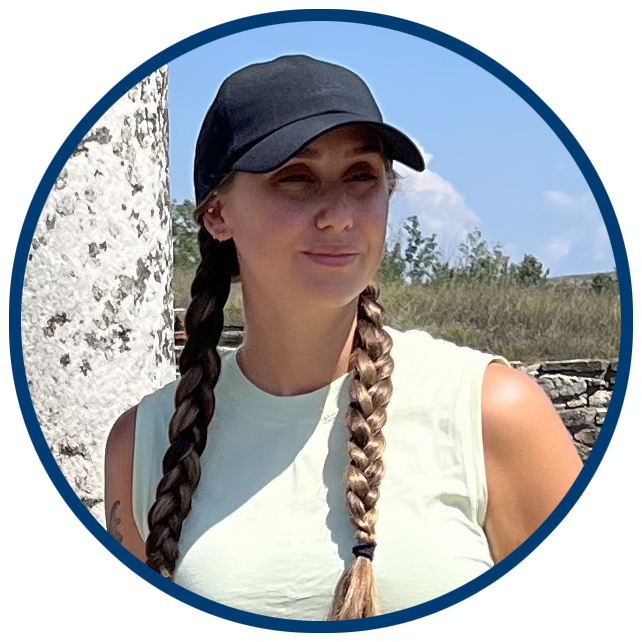 Kristina Opashinov is a dedicated educator and learning professional passionate about creating accessible, engaging, and innovative adult learning experiences. She serves as a teaching assistant in the Educational Studies program at the Mitch and Leslie Frazer Faculty of Education at Ontario Tech University and also works in a learning and development role at a pharmaceutical company. As a neurodivergent individual on the autism spectrum, Kristina values deep connections built on shared interests and is committed to fostering inclusive and meaningful learning environments.
Kristina Opashinov is a dedicated educator and learning professional passionate about creating accessible, engaging, and innovative adult learning experiences. She serves as a teaching assistant in the Educational Studies program at the Mitch and Leslie Frazer Faculty of Education at Ontario Tech University and also works in a learning and development role at a pharmaceutical company. As a neurodivergent individual on the autism spectrum, Kristina values deep connections built on shared interests and is committed to fostering inclusive and meaningful learning environments.
Making a Difference: Using Maker Pedagogy to Support Assistive Technology Users
- Time: 10:30 am - 11:00 am
- Format: Presentation
- Themes: Pedagogical Innovation, Teaching for Innovation
- Audience & Subject: This session will appeal to students, educators and educational leaders in a variety of roles at the elementary, secondary, and system level.

Shaun Maddock is an Education Consultant at Grandview School Authority in Ajax, Ontario. His responsibilities include supporting transitions, maintaining community partnerships, and facilitating special education training and professional development. His primary focus is equity for students with complex needs who require alternative access. As the Durham Region chapter lead for Makers Making Change, Shaun creates low-cost and innovative assistive technology solutions for his community. He is currently completing a Master’s in Education at Ontario Tech, with research interests that include exploring how AI can be accessed using assistive technology and the ethical implications for educators.
AI Chatbots & Social and Emotional Learning: Transforming Language Learning
Attend to discover how AI chatbots enhance Social-Emotional Learning (SEL) in language learning classrooms, fostering personalized, engaging, and inclusive education. Learn about cutting-edge research, and future trends in AI-driven learning in language learning.
Participants will learn how AI chatbots support SEL in language learning and explore research-backed benefits.
We will engage participants through interactive polls, maybe live demos or pre-recorded videos of AI chatbots, and Q&A sessions
- Time: 10:30 am - 11:00 am
- Format: Presentation
- Themes: Pedagogical Innovation, Structural Innovation
- Audience & Subject: Language Educators, researchers, AI developers will benefit most from this presentation. Attend to explore research insights on SEL and AI chatbots that can be used beyond classroom hours.
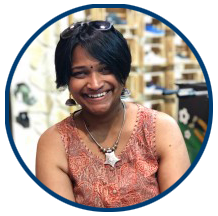 Nisha Srignaesh (M.Ed in Educational linguistics) is a doctoral student (Ed.D) at the Mitch and Leslie Frazer Faculty of Education, Ontario Tech University. She has over 15 + years of experience teaching English as a second language and Spanish and French as foreign languages in diverse academic settings. Nisha’s rich linguistic background and passion for emerging technologies shape her work at the intersection of language pedagogy and affective learning. Currently, her work focuses on the intersection of AI-driven and VR technologies and their impact on social emotional learning and intercultural competence among language learners, particularly within higher education.
Nisha Srignaesh (M.Ed in Educational linguistics) is a doctoral student (Ed.D) at the Mitch and Leslie Frazer Faculty of Education, Ontario Tech University. She has over 15 + years of experience teaching English as a second language and Spanish and French as foreign languages in diverse academic settings. Nisha’s rich linguistic background and passion for emerging technologies shape her work at the intersection of language pedagogy and affective learning. Currently, her work focuses on the intersection of AI-driven and VR technologies and their impact on social emotional learning and intercultural competence among language learners, particularly within higher education.
 Dr. Allyson Eamer is Associate Dean at the Mitch and Leslie Frazer Faculty of Education, Ontario Tech University. As a sociolinguist, she researches the inter-relationships between language learning, linguistic choices and social encounters including identity development, acculturation and curriculum design. Currently her work focuses on primary and secondary trauma in the language learning classroom.
Dr. Allyson Eamer is Associate Dean at the Mitch and Leslie Frazer Faculty of Education, Ontario Tech University. As a sociolinguist, she researches the inter-relationships between language learning, linguistic choices and social encounters including identity development, acculturation and curriculum design. Currently her work focuses on primary and secondary trauma in the language learning classroom.
Serious Games Develop Savvy Leaders
People learn and develop through diverse mechanisms. In this session, we highlight the impact of a serious gaming simulation: "Fligby," on leadership development. We share with participants the pre-game structure, gaming framework, and post-game psychometrics and coaching for effective leadership development.
Participants will explore the usefulness of serious gaming as a powerful educational tool. This interactive session includes breakout groups for participants to problem-solve a typical scenario posed by Fligby.
- Time: 10:30 am - 11:00 am
- Format: Presentation
- Themes: Pedagogical Innovation, Digital Innovation
- Audience & Subject: This session highlights the efficacy of serious gaming for learning and development.
 Rob Elkington, Ph.D., grew up in Zimbabwe, & South Africa, and currently resides in Canada, serving as Assistant Professor at Trent University School of Business and Master of Management program, Durham.
Rob Elkington, Ph.D., grew up in Zimbabwe, & South Africa, and currently resides in Canada, serving as Assistant Professor at Trent University School of Business and Master of Management program, Durham.
Rob's current research focuses on AI and Organizational Leadership, Ubuntu Leadership, The Use of META in Military Leadership Development (CAF Funded), Ubuntu and the Diversity Icebreaker (Trent IRDG Funded), E-Leadership for Effective Online Learning in Canadian Business Schools, Leading Change and Transformation for Data Modernization in Policing (RCMP Funded), and Students' use of AI for Education and Leadership Development.
 Anna Rudzinska is a fourth-year marketing student at the National University of Kyiv-Mohyla Academy, Ukraine. She has extensive international academic experience, having participated in exchange programs in Canada, France, and Austria. In the summer of 2024, she completed a research internship at Trent University, Canada, through the Mitacs program. As a research assistant to Prof. Rob Elkington and a team leader in the research team, she contributed to a study on the use of virtual simulations in leadership training for the Canadian Armed Forces, including a literature review on serious games in military leadership development.
Anna Rudzinska is a fourth-year marketing student at the National University of Kyiv-Mohyla Academy, Ukraine. She has extensive international academic experience, having participated in exchange programs in Canada, France, and Austria. In the summer of 2024, she completed a research internship at Trent University, Canada, through the Mitacs program. As a research assistant to Prof. Rob Elkington and a team leader in the research team, she contributed to a study on the use of virtual simulations in leadership training for the Canadian Armed Forces, including a literature review on serious games in military leadership development.
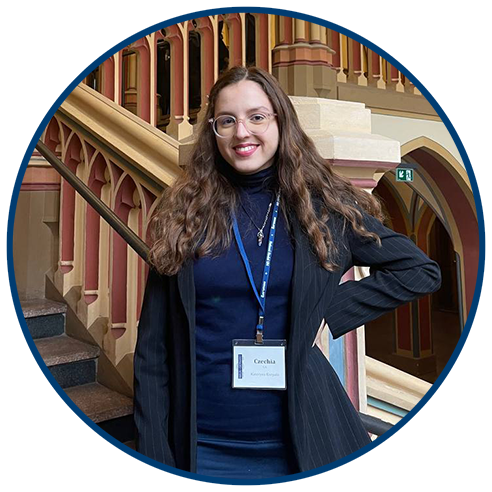 Kateryna Korpalo is a Master’s student in European Studies at the University of Regensburg, Germany. In 2024, she was a research assistant to Prof. Ruben Zaiotti at Dalhousie University, where she worked on migration diplomacy. That same year, she completed a research internship at Trent University, contributing to a study on Ubuntu leadership perspectives and the use of virtual simulations in leadership training for the Canadian Armed Forces under the supervision of Prof. Rob Elkington.
Kateryna Korpalo is a Master’s student in European Studies at the University of Regensburg, Germany. In 2024, she was a research assistant to Prof. Ruben Zaiotti at Dalhousie University, where she worked on migration diplomacy. That same year, she completed a research internship at Trent University, contributing to a study on Ubuntu leadership perspectives and the use of virtual simulations in leadership training for the Canadian Armed Forces under the supervision of Prof. Rob Elkington.
Kateryna has extensive experience in youth leadership and youth work, having led the Department of Regional Development at the European Youth Parliament Ukraine in 2023. She is a Rebuild Ukraine Ambassador, focusing on school education in Ukraine. Through her work, she advocates for sustainable reconstruction of educational facilities and improvement of the educational system to support children affected by war.
Lessons Learned: How to Design & Evaluate Cost-Accessible Coding Games for Children
Attendees will gain insight into designing and running studies with children, fostering collaboration in educational games, and navigating the challenges of hybrid and unplugged learning. Learn practical strategies to enhance engagement and research outcomes.
Discover key lessons from a K-5 computational thinking game study, including best practices for engagement, collaboration, and hybrid and unplugged learning. Gain practical strategies for designing and running educational game research with children.
Participants will engage with the speaker through live polls, interactive discussions, and Q&A, using polling software to gather insights, spark conversation, and encourage active participation in analyzing study challenges and key takeaways.
- Time: 11:00 am - 11:30 am
- Format: Presentation
- Themes: Digital Innovation, Teaching for Innovation
- Audience & Subject: Learn key insights from developing and running an unplugged K-5 computational thinking game study with a focus on collaboration. Ideal for educational game researchers and those wanting to run studies with children.
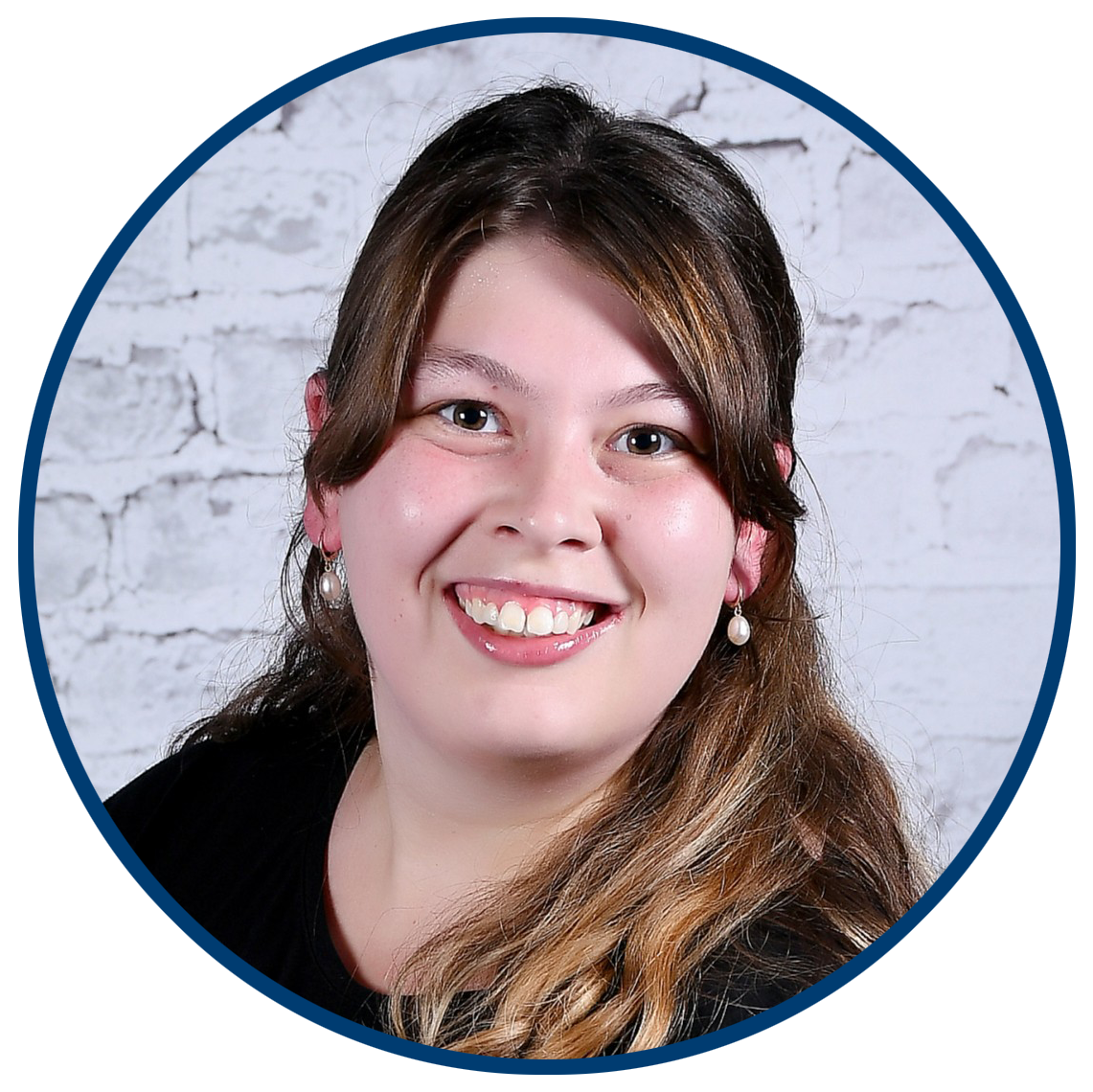 Stacey A. Koornneef is a PhD in Computer Science student at Ontario Tech University. Her primary work is on alternative forms of computational thinking education for children. Her further interests include accessibility in computer science, adding creativity to STEM education, AI ethics, and methods for engagement in CS1+x and quantum computing.
Stacey A. Koornneef is a PhD in Computer Science student at Ontario Tech University. Her primary work is on alternative forms of computational thinking education for children. Her further interests include accessibility in computer science, adding creativity to STEM education, AI ethics, and methods for engagement in CS1+x and quantum computing.
Beyond ChatGPT: Driving Digital Innovation with GPTs in Post-Secondary Education
This session showcases easy-to-use AI tools that will help attendees save time, integrate diverse perspectives, and promote the Universal Design for Learning framework. Attendees will gain practical insights into using these custom GPTs in their own teaching contexts.
Participants will learn about three custom GPTs: Teaching Assistant Blueprint for productivity, Black AI for representation, and the UDL Lesson Planner for accessibility. They will leave with actionable strategies to implement AI effectively in their teaching.
The session includes live demonstrations and interactive discussions. Participants can independently or collaboratively experiment with the AI tools to customize them for their teaching needs.
- Time: 11:00 am - 11:30 am
- Format: Presentation
- Themes: Pedagogical Innovation, Digital Innovation
- Audience & Subject: K-12 and post-secondary educators looking to enhance innovation, accessibility, and inclusivity in their teaching will benefit. This session explores three specialized GPTs designed to save time, diversify content, and create inclusive lesson plans.
 Celina Costa is an EAP professor at George Brown College with over 20 years of experience in post-secondary education. Passionate about using AI for good, she specializes in leveraging generative AI to enhance accessibility, innovation, and inclusion in education. Celina has presented on AI and Universal Design for Learning (UDL) at various conferences, is the creator of the monthly “AI Bytes” newsletter, and is actively engaged in action research on AI-assisted language learning.
Celina Costa is an EAP professor at George Brown College with over 20 years of experience in post-secondary education. Passionate about using AI for good, she specializes in leveraging generative AI to enhance accessibility, innovation, and inclusion in education. Celina has presented on AI and Universal Design for Learning (UDL) at various conferences, is the creator of the monthly “AI Bytes” newsletter, and is actively engaged in action research on AI-assisted language learning.
Generative AI in Education: Insights from Standardized Testing Comparisons
The session will explore the impact of Generative AI on human identity, standardized testing, and education, examining how AI models like ChatGPT challenge traditional markers of intelligence and reshape professional competencies in an evolving labor market. Gain insights into AI’s ethical implications, workforce shifts, and its role in education and beyond.
The session will engage participants through an in-depth discussion of research findings, real-world case studies, and AI-driven exam performance analysis, encouraging critical reflection on AI’s role in education, testing, and the future of work.
- Time: 11:00 am - 11:30 am
- Format: Presentation
- Theme: Digital Innovation
- Audience & Subject: This session unpacks how Generative AI is redefining intelligence, standardized testing, and professional skills. Gain insights into its impact on education, job markets, and ethics—essential for educators, policymakers, and professionals navigating AI’s rise.
 Maya Karanouh is a PhD Candidate at the Interdisciplinary Humanities Program at Brock University with research interests in Generative AI, digital humanities, and the visual arts. Maya is a multidisciplinary architect and designer, with over 25 years of experience in entrepreneurship, managing companies in the graphic design and digital fields in the Middle East. Her academic research has been awarded the General Brock Soiree Graduate award (2025), the Jack M. Miller Excellence in Research Award (2024) and the Congress Merit Award from the Canadian Communication Association (2024).
Maya Karanouh is a PhD Candidate at the Interdisciplinary Humanities Program at Brock University with research interests in Generative AI, digital humanities, and the visual arts. Maya is a multidisciplinary architect and designer, with over 25 years of experience in entrepreneurship, managing companies in the graphic design and digital fields in the Middle East. Her academic research has been awarded the General Brock Soiree Graduate award (2025), the Jack M. Miller Excellence in Research Award (2024) and the Congress Merit Award from the Canadian Communication Association (2024).
Using Learning Apps to Work Smarter, Not Harder
The FOLC encourages the co-creation of the digital learning space to support collaborative learning. Faculty and learners’ awareness of Web 2.0 and 3.0 tools is crucial in navigating a post-pandemic world dominated by technology.
Participants will learn about the awareness of web-based tools. This session is for anyone who desires to expand their social and cognitive presence through the affordances of digital tools in the digital learning space.
Presenters will engage the participants through encouraging questions. The interactive portion of the presentation will use Mentimeter to poll the participants on their familiarity with web-based tools.
- Time: 11:30 am - 12:00 pm
- Format: Presentation
- Themes: Structural Innovation
- Audience & Subject: The primary beneficiaries of this presentation are students and educators. This session will explore the characteristics of Web 2.0 and Web 3.0 tools as part of the digital space and emphasize the importance of co-creation within it.
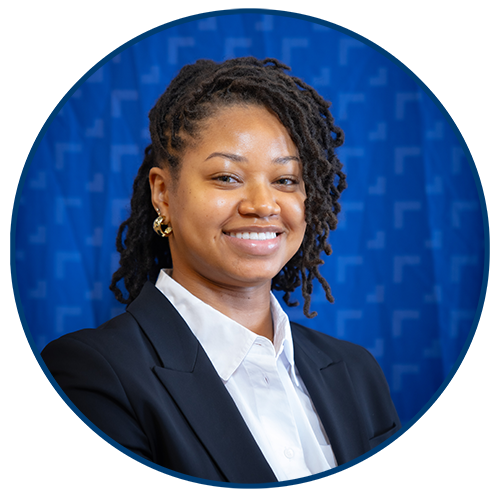 Amy Dyer is an internationally educated elementary teacher and MAEd candidate at Ontario Tech University (OTU). With a BSc in Elementary Education from Oakwood University, she explores educational technology’s role in pedagogy, online curriculum development, and equitable technology access. As an associate researcher at OTU’s EILAB (Educational Informatics Laboratory), her research focuses on Human-Computer-Human Interaction (HCHI), Fully Online Learning Communities (FOLC), and E-Learning equity. She has co-authored a three-part study in the EILAB on collaborative learning components in online communities examining technological self-efficacy (TSE), team-based learning (TBL), and critical thinking (CT). Her interests include inclusive online course design, instructional design, virtual learning environments, and assessment technologies for K-12 and higher education.
Amy Dyer is an internationally educated elementary teacher and MAEd candidate at Ontario Tech University (OTU). With a BSc in Elementary Education from Oakwood University, she explores educational technology’s role in pedagogy, online curriculum development, and equitable technology access. As an associate researcher at OTU’s EILAB (Educational Informatics Laboratory), her research focuses on Human-Computer-Human Interaction (HCHI), Fully Online Learning Communities (FOLC), and E-Learning equity. She has co-authored a three-part study in the EILAB on collaborative learning components in online communities examining technological self-efficacy (TSE), team-based learning (TBL), and critical thinking (CT). Her interests include inclusive online course design, instructional design, virtual learning environments, and assessment technologies for K-12 and higher education.
Dr. Roland van Oostveen holds a Ph.D. in Curriculum, Teaching and Learning from the University of Toronto. He spent 18 years as a science educator in private and public K-12 formal education settings, concluding as Science Curriculum Coordinator for Toronto District School Board. Dr. van Oostveen currently serves as Director of the Educational Informatics Laboratory (EILab) at Faculty of Education, UOIT, an innovative research facility, which focuses on Human Computer Human Interactions (HCHI).
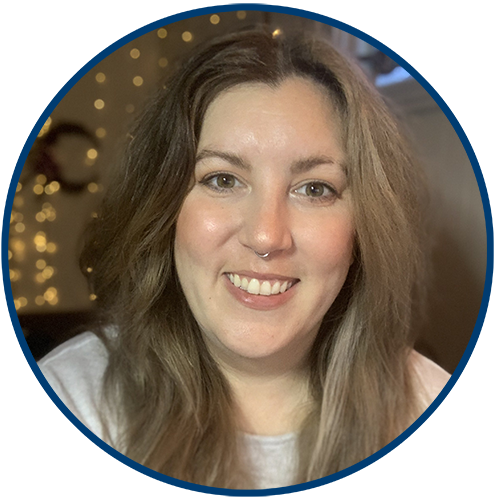 Jessica Trinier (she/they) is an EdD student and a sessional instructor at OnTechU. They have 15 years of experience teaching in higher education, and they are a former library worker. Her research interests focus on fostering communities through technology, equity, diversity, inclusion, and accessibility, and queer pedagogy. Jessica is a White settler of Scottish and Finnish ancestry.
Jessica Trinier (she/they) is an EdD student and a sessional instructor at OnTechU. They have 15 years of experience teaching in higher education, and they are a former library worker. Her research interests focus on fostering communities through technology, equity, diversity, inclusion, and accessibility, and queer pedagogy. Jessica is a White settler of Scottish and Finnish ancestry.
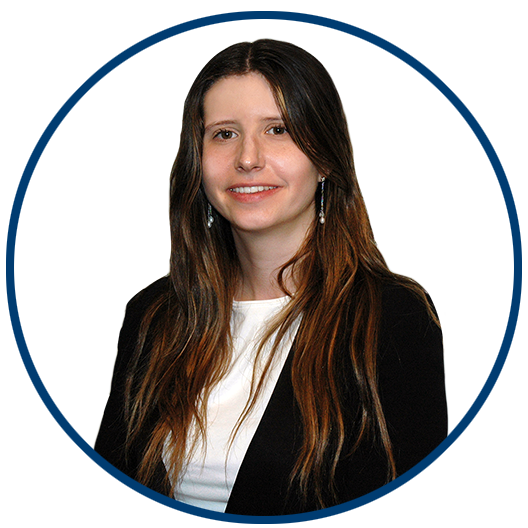
Irina Farkov is a teacher with the SCDSB. She is currently enrolled in the Doctor of Education program at Ontario Tech University. Her research interests are teacher professional learning and the operationalization of educational technology, such as online learning platforms.
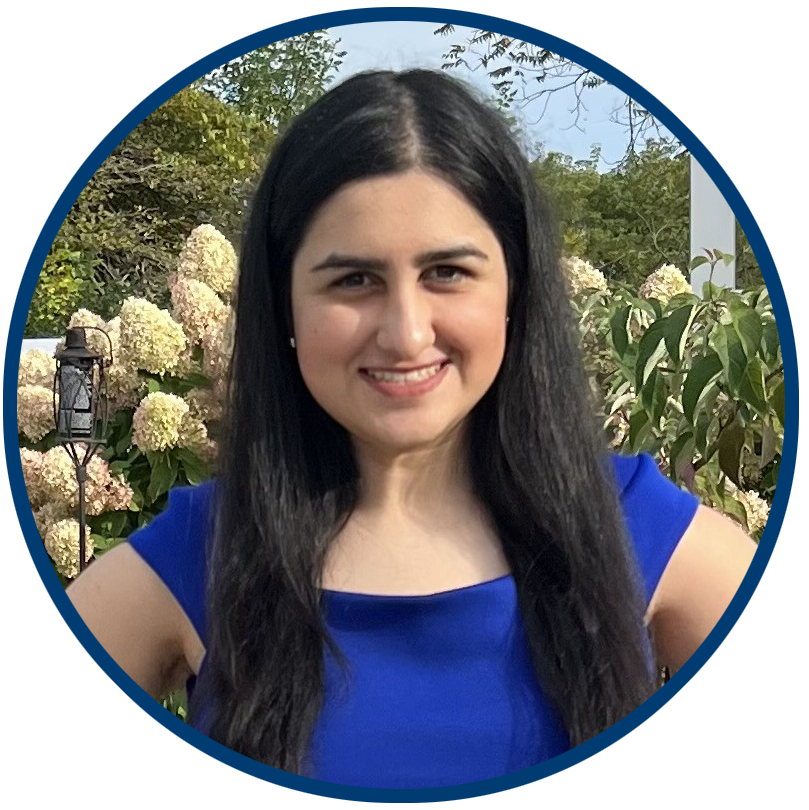 Dhanak Ohri currently works as an emergency supply teacher with the Toronto District School Board. Her work currently focuses on online digital learning spaces, with a particular focus on adult and children education. Dhanak Ohri enjoys reading, traveling and trying new cuisines. She is currently completing her Master of Education at Ontario Tech University.
Dhanak Ohri currently works as an emergency supply teacher with the Toronto District School Board. Her work currently focuses on online digital learning spaces, with a particular focus on adult and children education. Dhanak Ohri enjoys reading, traveling and trying new cuisines. She is currently completing her Master of Education at Ontario Tech University.
Navigating the AI Landscape in Higher Education: Insights from a National Study
I will cover topics such as the uneven usage of AI across socio-demographic groups and fields of study, the link between frequency of use and quality of teaching and learning experiences, and the tasks educators most and least favour for AI integration.
- Time: 11:30 am - 12:00 pm
- Format: Presentation
- Themes: Digital Innovation, Teaching for Innovation
- Audience & Subject: This session is ideal for educators, administrators, and anyone interested in AI integration in higher education. Attendees will gain insights into current AI use, challenges, and opportunities, with flexible takeaways for AI integration and professional development.
 Adam Vanzella Yang is a Senior Research Associate with the Education and Skills team at The Conference Board of Canada (CBoC), where he leads research projects on critical issues facing Canada's post-secondary education system. Prior to joining CBoC, Adam was a SSHRC postdoctoral researcher at the University of Montreal. He holds a PhD in Sociology from the University of British Columbia and brings over 10 years of experience conducting research across various fields.
Adam Vanzella Yang is a Senior Research Associate with the Education and Skills team at The Conference Board of Canada (CBoC), where he leads research projects on critical issues facing Canada's post-secondary education system. Prior to joining CBoC, Adam was a SSHRC postdoctoral researcher at the University of Montreal. He holds a PhD in Sociology from the University of British Columbia and brings over 10 years of experience conducting research across various fields.
Day 1 - Friday, April 4, 2025 - Afternoon Poster Presentations
- Education on the Fringes: MoodleBoxes for Offline and Off-grid Learning
- Learning Experiences Reimagined: Enhancing Experiential Learning Through Online and Offsite Interactions
- AI Storytime: Crafting Social Stories to Support Student Behavior & Emotions
- From Algorithms to Aspirations: AI Tools in Career Planning
- Elevating Early Childhood Education with AI-Enhanced Pedagogical Documentation
- Using AI-Powered Tools to Enhance Article Retrieval Processes: Locating Quality Resources Quickly
- Agentic AI and the Future of White and Gold Collar Careers
Education on the Fringes: MoodleBoxes for Offline and Off-grid Learning
MoodleBoxes provide education at the fringes of our technological society. MoodleBoxes run Moodle software on Raspberry Pi hardware, and learners can use tablets or smartphones to learn without internet or electricity.
A poster presentation reports on a rapid literature review of how MoodleBoxes have been used to facilitate learning, often in remote areas with intermittent blackouts and limited internet connectivity.
- Time: 2:30 pm - 3:30 pm
- Format: Poster Presentation
- Theme: Digital Innovation
- Audience & Subject: Research on an innovative solution enabling media-rich learning experiences in challenging contexts, like those without reliable electricity and internet access, may interest educators frustrated by the digital divide.
 Timothy Bahula is an Ed.D. student at Ontario Tech University, researching the pedagogical use of interactive videos in post-secondary education. He has co-authored several publications on video-based feedback in higher education, demonstrating his commitment to advancing educational technology practices. As the Director of Educational Technology at Horizon Education Network, he supports and consults with educators worldwide, leveraging his expertise in online learning and educational technology to enhance teaching and learning experiences in diverse contexts. Because he works internationally, Tim focuses on cost-effective, reproducible, and sustainable approaches to educational technology.
Timothy Bahula is an Ed.D. student at Ontario Tech University, researching the pedagogical use of interactive videos in post-secondary education. He has co-authored several publications on video-based feedback in higher education, demonstrating his commitment to advancing educational technology practices. As the Director of Educational Technology at Horizon Education Network, he supports and consults with educators worldwide, leveraging his expertise in online learning and educational technology to enhance teaching and learning experiences in diverse contexts. Because he works internationally, Tim focuses on cost-effective, reproducible, and sustainable approaches to educational technology.
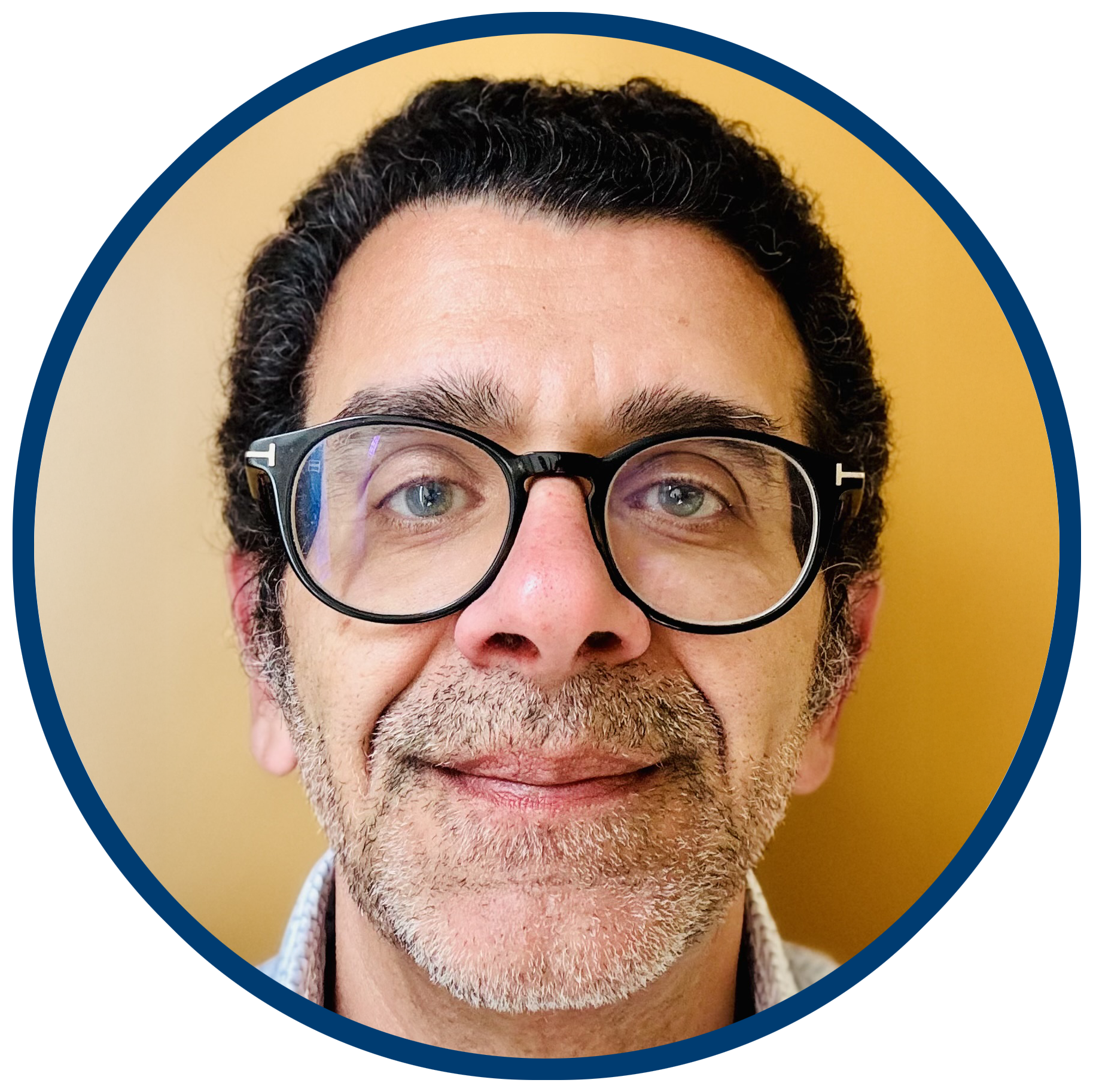 Salvatore Plati is an experienced higher education educator with a robust post-secondary education and professional background. His practice centers on creating interactive and inclusive learning environments while integrating diverse perspectives into the curriculum and institutional practices. With a continued interest in how people learn in online spaces, Salvatore researches digital game-based learning (DGBL) and the influence of interactive media on engagement and learning outcomes. Salvatore is particularly keen on exploring how teachers can optimally utilize digital games. By bridging theory and practice, Salvatore combines university research with practical experience to foster meaningful educational innovation. Committed to leveraging the potential of technology in education, Salvatore endeavours to enhance student success and engagement in a rapidly evolving digital landscape.
Salvatore Plati is an experienced higher education educator with a robust post-secondary education and professional background. His practice centers on creating interactive and inclusive learning environments while integrating diverse perspectives into the curriculum and institutional practices. With a continued interest in how people learn in online spaces, Salvatore researches digital game-based learning (DGBL) and the influence of interactive media on engagement and learning outcomes. Salvatore is particularly keen on exploring how teachers can optimally utilize digital games. By bridging theory and practice, Salvatore combines university research with practical experience to foster meaningful educational innovation. Committed to leveraging the potential of technology in education, Salvatore endeavours to enhance student success and engagement in a rapidly evolving digital landscape.
Learning Experiences Reimagined: Enhancing Experiential Learning Through Online and Offsite Interactions
Kolb’s Experiential Learning Cycle creates engaging, transferable learning experiences by putting learners at the centre of their own discovery. It encourages active participation, reflection, and critical thinking, naturally boosting engagement and relevance. See our poster to learn how it works!
This poster explores Kolb’s Experiential Learning Cycle (ELC) and Ludic Pedagogy in an alternative-delivery listening course (EDST 3999) at Ontario Tech University. By combining in-person experiential activities with contemporary digital tools such as Perusall, Mentimeter, and Zoom, this course demonstrated how both online and offsite learning environments complement one another to foster engagement, skill development and pedagogical innovation.
Teaching and learning doesn't have to follow the same 3 hrs/week for 12 week framework! Come see how an alternative delivery course that combined fun, play, experiential learning, and academic excellence was a wild success!
Students and faculty will be present to answer your queries and describe their experiences.
- Time: 2:30 pm - 3:30 pm
- Format: Poster Presentation
- Theme: Digital Innovation
- Audience & Subject: Higher Education, Educators, Administration, Leadership. Experiential learning.
 Dr. Sharon Lauricella is a full professor at Ontario Tech, and is cross-appointed between the Faculty of Education and Faculty of Social Science. Sharon holds a doctoral degree from the University of Cambridge (UK) and a Certificate in Higher Education Teaching from the Derek Bok Center for Teaching and Learning at Harvard University. Her research focuses on teaching with technology, mental health of undergraduate students, and the value of fun and play in higher education.
Dr. Sharon Lauricella is a full professor at Ontario Tech, and is cross-appointed between the Faculty of Education and Faculty of Social Science. Sharon holds a doctoral degree from the University of Cambridge (UK) and a Certificate in Higher Education Teaching from the Derek Bok Center for Teaching and Learning at Harvard University. Her research focuses on teaching with technology, mental health of undergraduate students, and the value of fun and play in higher education.
 Shajeena Balasingam is a fourth-year Psychology student at Ontario Tech University specializing in Developmental Psychology and minoring in Communications. She works in the Student Learning Centre as a Peer Educator and supports undergraduate students in various psychology and social science courses. In Fall 2025, she is looking forward to beginning her Masters degree in Psychology at Brock University.
Shajeena Balasingam is a fourth-year Psychology student at Ontario Tech University specializing in Developmental Psychology and minoring in Communications. She works in the Student Learning Centre as a Peer Educator and supports undergraduate students in various psychology and social science courses. In Fall 2025, she is looking forward to beginning her Masters degree in Psychology at Brock University.
 Ben Steele is a 4th year Ontario Tech Student in the Educational Studies program. While pursuing his education he works at Durham College Student Association as the Student Network & Engagement Coordinator. Ben is passionate about learning, leadership and helping to create inclusive spaces.
Ben Steele is a 4th year Ontario Tech Student in the Educational Studies program. While pursuing his education he works at Durham College Student Association as the Student Network & Engagement Coordinator. Ben is passionate about learning, leadership and helping to create inclusive spaces.
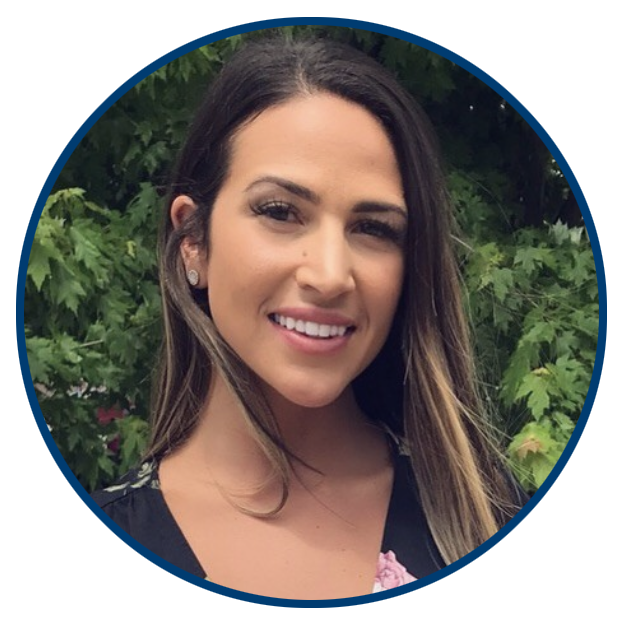 Julia DiSomma is a fourth-year student in Educational Studies at Ontario Tech University. In addition to pursuing her BA, she is a full-time registered early childhood educator working with preschool-aged children.
Julia DiSomma is a fourth-year student in Educational Studies at Ontario Tech University. In addition to pursuing her BA, she is a full-time registered early childhood educator working with preschool-aged children.
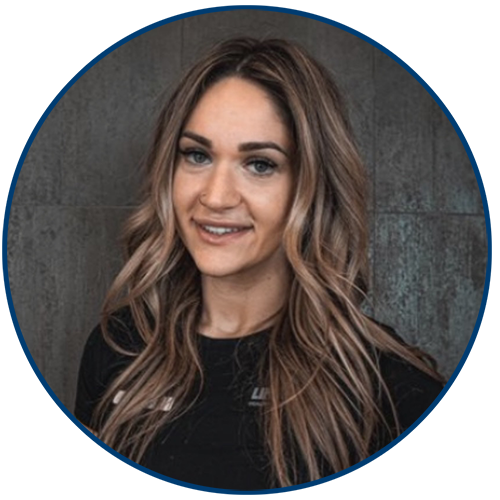 Danielle Petrovski is a small business owner and a 4th-year full-time student in the Educational Studies program. While balancing entrepreneurship and academics, she is deeply passionate about integrating holistic learning and wellness into education, empowering students to grow both inside and outside the classroom.
Danielle Petrovski is a small business owner and a 4th-year full-time student in the Educational Studies program. While balancing entrepreneurship and academics, she is deeply passionate about integrating holistic learning and wellness into education, empowering students to grow both inside and outside the classroom.
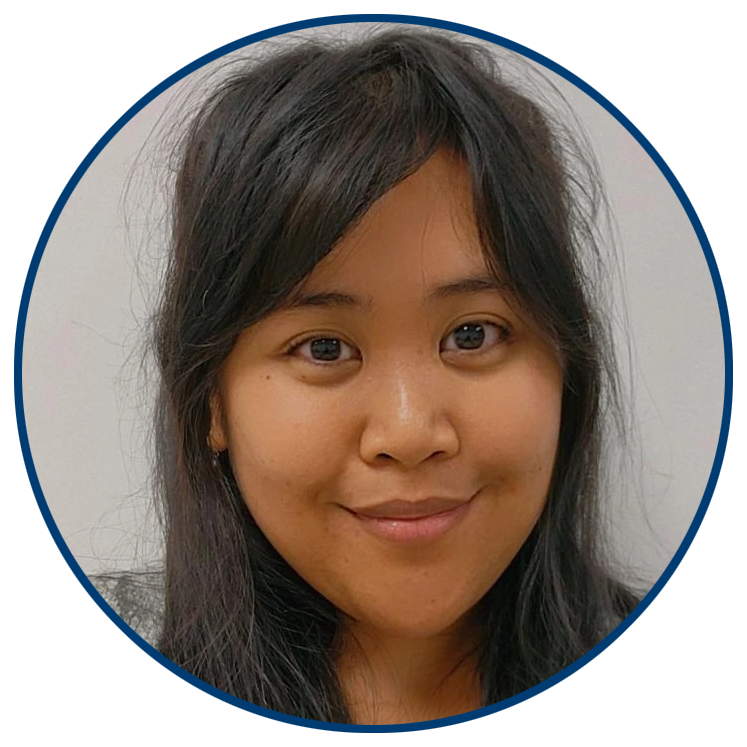 Mary Grace Dela Fuente is a third-year BA Educational Studies student specializing in Adult Learning with Technology and a Coordinator at Ontario Health’s Provincial Equity Office. She supports initiatives that advance healthcare equity and examines how education drives social change. Committed to bridging access gaps and amplifying underrepresented voices, she seeks to foster lifelong learning as a tool for community empowerment and systemic change.
Mary Grace Dela Fuente is a third-year BA Educational Studies student specializing in Adult Learning with Technology and a Coordinator at Ontario Health’s Provincial Equity Office. She supports initiatives that advance healthcare equity and examines how education drives social change. Committed to bridging access gaps and amplifying underrepresented voices, she seeks to foster lifelong learning as a tool for community empowerment and systemic change.
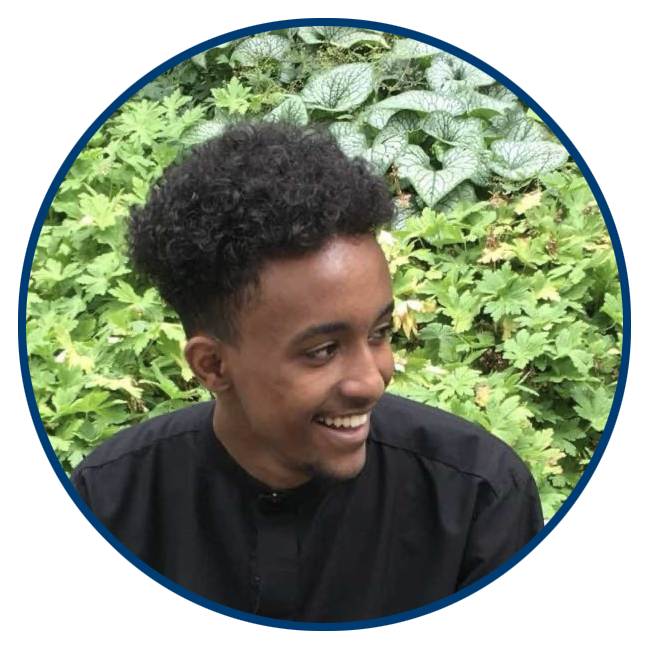 Mohamed Yusuf is a 3rd-year Educational Studies student at Ontario Tech University with a background in Early Childhood Education from George Brown College. Passionate about inclusive education, he strives to create meaningful learning experiences that support diverse communities while bridging education, culture, and community engagement.
Mohamed Yusuf is a 3rd-year Educational Studies student at Ontario Tech University with a background in Early Childhood Education from George Brown College. Passionate about inclusive education, he strives to create meaningful learning experiences that support diverse communities while bridging education, culture, and community engagement.
AI Storytime: Crafting Social Stories to Support Student Behavior & Emotions
This presentation aims to help elementary educators and students by using AI resources to rapidly create personalized social stories tailored to specific student behavioural and emotional behaviours. Social stories are valuable resources for helping students navigate classroom expectations, emotional regulation, and social interactions. By following the steps outlined in the poster, educators—including general teachers, special education teachers, and support staff—can generate custom stories efficiently at little to no cost with the help of AI. The process also acknowledges ethical considerations relevant to using AI and outlines some key questions educators should consider in the developmental process. I look forward to talking with you and will provide sample social stories generated from the steps to stimulate your creative ideas.
- Time: 2:30 pm - 3:30 pm
- Format: Poster Presentation
- Theme: Digital Innovation
- Audience & Subject: Elementary educators and students. Artificial Intelligence (AI) tools.
 Erin Mercier is a Registered Early Childhood Educator (RECE) and an aspiring educator with a strong health, nutrition, and early childhood education background. She is a Registered Early Childhood Educator, Educational Assistant (EA) supply and Emergency Teacher at the Upper Canada District School Board. Guided by a passion for inclusive learning environments and exploring digital affordances to enhance student success and well-being, Erin is enrolled in OntarioTech’s Bachelor of Arts in Educational Studies with a specialization in Early Childhood Learning. With experience in early childhood and elementary education, she seeks to equip educators with innovative tools to support diverse learners effectively.
Erin Mercier is a Registered Early Childhood Educator (RECE) and an aspiring educator with a strong health, nutrition, and early childhood education background. She is a Registered Early Childhood Educator, Educational Assistant (EA) supply and Emergency Teacher at the Upper Canada District School Board. Guided by a passion for inclusive learning environments and exploring digital affordances to enhance student success and well-being, Erin is enrolled in OntarioTech’s Bachelor of Arts in Educational Studies with a specialization in Early Childhood Learning. With experience in early childhood and elementary education, she seeks to equip educators with innovative tools to support diverse learners effectively.From Algorithms to Aspirations: AI Tools in Career Planning
Discover how AI-driven career planning tools can transform and streamline career advising and data-informed career planning. This presentation will be helpful to you if you are an aspiring educator, a student development professional, an individual looking to further your career, or interested in learning more about AI’s broad scope of capabilities. Using AI planning tools during the job search processes can improve job matching, skill development, and accessibility while reducing burnout among career advisors and easing distress for job seekers. The poster provides step-by-step guidelines for an AI-supported but human-centred approach to reshaping career advising and workforce readiness with personalized career guidance, job search assistance, and self-marketing strategies. Additionally, the presentation will outline ethical considerations and equitable AI integration to better prepare individuals for the current and future workforce. I look forward to engaging in a collaborative dialogue on ethical AI integration and its evolving role in education and workforce development.
- Time: 2:30 pm - 3:30 pm
- Format: Poster Presentation
- Theme: Digital Innovation
- Audience & Subject: This session is well suited for aspiring educators, career development professionals, individuals looking to further their career, and anyone interested in learning more about AI’s broad scope of capabilities.
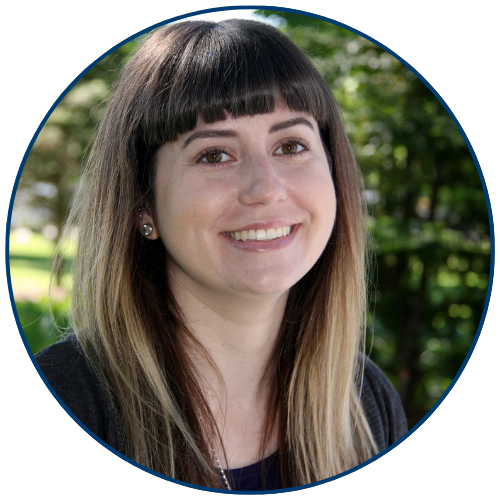 Meghan Gilligan is an Employment Specialist and Field Placement Advisor at Durham College and a Teaching Assistant at Ontario Tech University. She is pursuing a Bachelor of Arts in Educational Studies, specializing in Adult Learning with Technology. With over a decade of experience in employment counselling and facilitation, Meghan is passionate about integrating diverse technologies into the workplace and experiential learning. She is committed to empowering adult learners by fostering confidence and adaptability in an evolving digital landscape.
Meghan Gilligan is an Employment Specialist and Field Placement Advisor at Durham College and a Teaching Assistant at Ontario Tech University. She is pursuing a Bachelor of Arts in Educational Studies, specializing in Adult Learning with Technology. With over a decade of experience in employment counselling and facilitation, Meghan is passionate about integrating diverse technologies into the workplace and experiential learning. She is committed to empowering adult learners by fostering confidence and adaptability in an evolving digital landscape.Elevating Early Childhood Education with AI-Enhanced Pedagogical Documentation
This presentation is for Registered Early Childhood Educators (RECEs) looking to maintain high-quality early learning programs by maximizing direct engagement with children and reducing administrative burdens with AI. With limited support, the demands of daily routines, interactions with children, and the planning and preparation of enriching learning opportunities, adequate time is a limited resource. Despite the lack of time, it is a weekly requirement to highlight children’s play experiences and demonstrate their connections to facility-specific frameworks. The process is essential to ensure accountability and reflective practice but can be time-consuming when searching for relevant supporting quotes. As manually searching for supporting quotes is a notable example of inefficiency, this presentation outlines a pragmatic solution for writing documentation, incorporating a searchable AI-powered personal database to streamline the process. Beyond the actionable steps to help other RECEs—and to inspire other educators—you will also be able to see the process live, and I am happy to share my experiences in this self-case study.
- Time: 2:30 pm - 3:30 pm
- Format: Poster Presentation
- Theme: Digital Innovation
- Audience & Subject: Early Childhood Education, Primary Education, Artificial Intelligence
 Julia DiSomma is a full-time Registered Early Childhood Educator working with preschool-aged children at the YMCA of the Greater Toronto Area. She is passionate about providing meaningful care during the early years and is equally committed to supporting her peers through peer tutoring. Julia is pursuing a Bachelor of Arts in Educational Studies at Ontario Tech University. As the highest-ranked graduate of Durham College’s Early Childhood Education program in 2018, Julia was awarded the Roger Anderson Charity Classic Scholarship Award. With international experience in early childhood education, she offers a diverse, inclusive approach to supporting children’s development. In addition, her background in fitness and health strengthens her commitment to promoting well-being for both children and educators.
Julia DiSomma is a full-time Registered Early Childhood Educator working with preschool-aged children at the YMCA of the Greater Toronto Area. She is passionate about providing meaningful care during the early years and is equally committed to supporting her peers through peer tutoring. Julia is pursuing a Bachelor of Arts in Educational Studies at Ontario Tech University. As the highest-ranked graduate of Durham College’s Early Childhood Education program in 2018, Julia was awarded the Roger Anderson Charity Classic Scholarship Award. With international experience in early childhood education, she offers a diverse, inclusive approach to supporting children’s development. In addition, her background in fitness and health strengthens her commitment to promoting well-being for both children and educators.Using AI-Powered Tools to Enhance Article Retrieval Processes: Locating Quality Resources Quickly
Educators and students will benefit from this presentation, which explores how AI-powered tools impact the resource retrieval process with an awareness of challenges in digital literacy, critical thinking, and accessibility. Insight within the poster will help you learn how to use AI-powered processes independently or alongside traditional article retrieval platforms to streamline the resource retrieval process. Specifically, it will focus on the ethical integration of AI to reduce the time required to collect the resources in awkward traditional platforms while increasing the time available for learning outcome achievement. Participants will learn about the student experience using traditional research repositories and AI-powered networks and how they compare in the context of content provided, efficiency, and engagement. Please stop by to engage in open-ended discussions about your experiences gathering resources. I’m happy to offer an interactive comparison and walkthrough of my AI-enhanced process.
- Time: 2:30 pm - 3:30 pm
- Format: Poster Presentation
- Theme: Digital Innovation
- Audience & Subject: University Students, Educators, Researchers
 Mohamed Yusuf is a third-year educational studies student pursuing a BA at Ontario Tech University, with a background in early childhood education from George Brown College. He is also a Registered Early Childhood Educator passionate about creating equitable, curiosity-driven learning experiences that bridge education, technology, and community. As a distance education student, Mohamed’s work promotes inclusive education by leveraging alternative course delivery, digital literacy, and emerging technologies. Mohamed’s focus is the dynamic process of transitioning from traditional paradigms to digital platforms and the impact on student engagement, critical inquiry, and digital fluency.
Mohamed Yusuf is a third-year educational studies student pursuing a BA at Ontario Tech University, with a background in early childhood education from George Brown College. He is also a Registered Early Childhood Educator passionate about creating equitable, curiosity-driven learning experiences that bridge education, technology, and community. As a distance education student, Mohamed’s work promotes inclusive education by leveraging alternative course delivery, digital literacy, and emerging technologies. Mohamed’s focus is the dynamic process of transitioning from traditional paradigms to digital platforms and the impact on student engagement, critical inquiry, and digital fluency.Agentic AI and the Future of White and Gold Collar Careers
This session offers critical perspectives rarely voiced in AI discourse, using Critical Discourse Analysis to examine how agentic AI reshapes labor, power, and professional identity in post-secondary education. Participants will learn how agentic AI reshapes authority, labour, and trust in post-secondary settings—and how to critically respond using insights from discourse, power, and institutional analysis. Through dynamic one-on-one discussions, interactive visuals, and thought-provoking questions, we’ll invite participants to critically reflect on AI’s impact in their professional contexts.
- Time: 2:30 pm - 3:30 pm
- Format: Poster Presentation
- Theme: Pedagogical Innovation, Structural Innovation, Digital Innovation
- Audience & Subject: Post-secondary educators, leaders, and policymakers will gain critical insight into how agentic AI reshapes labour, authority, and equity—key for navigating disruption in academia and beyond.
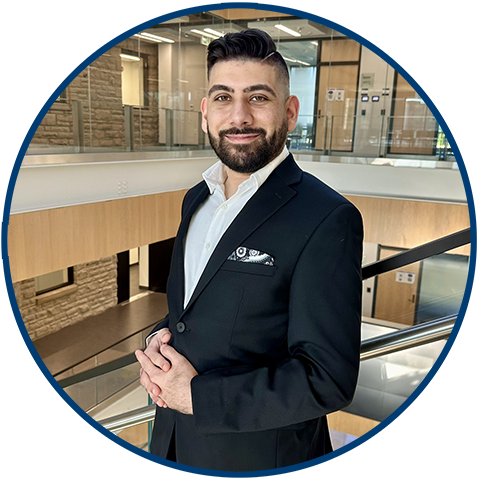 Roman Naghshi, M.Ed., is a PhD student in Curriculum Studies at Western University and a recent graduate of the Master of Education program at Ontario Tech University. His interdisciplinary research explores the intersection of artificial intelligence, ethics, philosophy, and education, with a focus on how AI is disrupting traditional pedagogical models in post-secondary institutions. In addition to his academic work, Roman brings over a decade of hands-on experience in computational hardware, enriching his practical understanding of technology in educational contexts.
Roman Naghshi, M.Ed., is a PhD student in Curriculum Studies at Western University and a recent graduate of the Master of Education program at Ontario Tech University. His interdisciplinary research explores the intersection of artificial intelligence, ethics, philosophy, and education, with a focus on how AI is disrupting traditional pedagogical models in post-secondary institutions. In addition to his academic work, Roman brings over a decade of hands-on experience in computational hardware, enriching his practical understanding of technology in educational contexts. Hussain Masud is a Business Systems Analyst at London Hydro and a graduate of Western University, where he completed a Bachelor of Engineering Science in Electrical Engineering and a Bachelor of Science in Computer Science. His work sits at the intersection of systems analysis, data infrastructure, and applied machine learning, with experience working with large language models in both practical and experimental contexts. Hussain maintains an interest in the role of interactive technologies and game-based tools in supporting innovative approaches to teaching and learning.
Hussain Masud is a Business Systems Analyst at London Hydro and a graduate of Western University, where he completed a Bachelor of Engineering Science in Electrical Engineering and a Bachelor of Science in Computer Science. His work sits at the intersection of systems analysis, data infrastructure, and applied machine learning, with experience working with large language models in both practical and experimental contexts. Hussain maintains an interest in the role of interactive technologies and game-based tools in supporting innovative approaches to teaching and learning.Day 1 - Friday, April 4, 2025 - Afternoon Sessions
- Learning with ChatGPT: An ELT educator’s journey of building critical AI literacy
- Activating the Online Space: Structuring Collaborative Learning
- Analyzing Social Media and Freedom of Expression in the Educational Context
- Pedagogy in Motion: Play, Presence, and Problematizing the Past
- Equitable Strategies in K-12 Curriculum and Teaching: Lessons from Two Innovators
- From AI Arbitrage to Postplagiarism: Reimagining Academic Integrity in Ontario Secondary Schools
- At the Intersection of Culture-Based Learning and STEAM: Innovations in Elementary Education
- Chatting with Al Capone: Exploring the Social, Intercultural, and Emotional Affordances of Virtual Conversational Agents in Language Learning
- Fun Meets Function: Leveraging Playful AI for Higher Education Student Engagement
Learning with ChatGPT: An ELT educator’s journey of building critical AI literacy
The participants will be invited to engage with the study results to revisit their conceptualizations of critical AI literacy, reflect on adapting their teaching approaches to create more human-focused learning experiences, and position learners as collaborators and knowledge co-creators in AI-enhanced ELT classrooms.
The session will offer three main takeaways: reconceptualizing critical AI literacy as an iterative process; revisiting educators’ teaching approaches to adopt more human-focused pedagogies; and crafting specific pedagogical realizations to engage the learners as collaborators and co-creators of knowledge. The presenter will also demonstrate how to harness some of the affordances of ChatGPT as a critical friend and differently knowledgeable other to foster reflective thinking.
The participants will be encouraged to share ideas, reflections, and questions in the chat box and through a polling platform to formulate their key takeaways and transferable ideas from the session. The presenter will also invite the audience to connect after the session to address specific questions, welcome constructive criticism, and assist with ideas and feedback on their research projects.
- Time: 2:30 pm - 3:00 pm
- Format: Presentation
- Theme: Pedagogical Innovation
- Audience & Subject: This session may be of interest to adult educators and English language teaching professionals in multilingual settings interested in enhancing their teaching realizations by developing CAIL and crafting AI-mediated approaches to personalize learning and sustain human-centric pedagogies.
 Plamen Kushkiev, EdD, is a professor at George Brown College (GBC) and Centennial College, where he facilitates adult education courses. Plamen has completed a certificate in AI for Teaching and Learning from Ontario Tech University in addition to English language teaching (ELT) credentials from the UK and Canada. The recipient of GBC’s 2024 SoTL Scholar Award, Plamen is actively engaged in research projects exploring GenAI-enhanced language teaching, ELT educator emotional experiences and identity, and teacher professional learning in the age of AI. He regularly presents at national and international ELT conferences and has been invited as a featured speaker in Taiwan, Peru, and Kuwait. Plamen currently leads the Teaching and Learning Community of Practice in SoTL-ESL at George Brown College and serves as a TESL Toronto member-at-large.
Plamen Kushkiev, EdD, is a professor at George Brown College (GBC) and Centennial College, where he facilitates adult education courses. Plamen has completed a certificate in AI for Teaching and Learning from Ontario Tech University in addition to English language teaching (ELT) credentials from the UK and Canada. The recipient of GBC’s 2024 SoTL Scholar Award, Plamen is actively engaged in research projects exploring GenAI-enhanced language teaching, ELT educator emotional experiences and identity, and teacher professional learning in the age of AI. He regularly presents at national and international ELT conferences and has been invited as a featured speaker in Taiwan, Peru, and Kuwait. Plamen currently leads the Teaching and Learning Community of Practice in SoTL-ESL at George Brown College and serves as a TESL Toronto member-at-large.
Activating the Online Space: Structuring Collaborative Learning
This presentation discusses the dynamics of online collaborative curriculum, communication challenges and platform modalities and will be of interest to those designing hybrid synchronous and asynchronous learning across institutions.
By considering how learners respond to, and interact in, various online platforms that have evolved over the past 15 years, the presentation suggests ways to create and sustain engagement in the online learning space.
Examples based on experiences of the International Art Collaborations Network will suggest ways to structure platform choices when planning an online collaborative experience that supports the forms of interaction and communication desired.
Presented in a lecture/discussion format, participants will have the opportunity to share their experiences using different modes of online communication or collaboration between groups.
- Session Time: 2:30 pm - 3:30 pm
- Format: Round Table Discussion
- Theme: Pedagogical Innovation
- Audience & Subject: General, The Arts
 Peter Sramek holds an Adjunct position as Professor Emeritus at OCAD University in Toronto, where he continues efforts to expand experiential and cross-cultural learning opportunities for students through involvement with the International Art Collaborations Network. Gaining an understanding of the dynamics of designing and facilitating collaborative online curriculum has been central to this program begun in 2010, and he now shares these insights in the co-authored book, Modelling International Collaborations in Art Education published by Intellect Books (2024).
Peter Sramek holds an Adjunct position as Professor Emeritus at OCAD University in Toronto, where he continues efforts to expand experiential and cross-cultural learning opportunities for students through involvement with the International Art Collaborations Network. Gaining an understanding of the dynamics of designing and facilitating collaborative online curriculum has been central to this program begun in 2010, and he now shares these insights in the co-authored book, Modelling International Collaborations in Art Education published by Intellect Books (2024).
His diverse art practice in photography and handmade books engages conceptual interests in how images can reflect our connections to history and place, as well as to the natural world. He is the author of Piercing Time: Paris After Marville and Atget 1865–2012, also published by Intellect Books.
Analyzing Social Media and Freedom of Expression in the Educational Context
This session will also explore several key questions, including the following: (a) Do the landmark U.S. Supreme Court cases on student free speech remain relevant in today’s digital age? (b) Should schools impose discipline on students for inappropriate social media comments made outside of school? (c) Should students be disciplined for inappropriate social media comments, even if they do not cause significant disruption at school? and, (d) Does off-campus cyber speech require guidance from the Supreme Court of Canada?
Participants will gain a comprehensive understanding of freedom of expression in the digital realm, focusing specifically on off-campus cyber speech, its implications, challenges, and legal considerations in modern society.
I will thoroughly examine a series of legal case studies focused on the topic of freedom of expression, analyzing key rulings and their implications for Canadian teachers.
- Session Time: 2:30 pm - 3:30 pm
- Format: Round Table Discussion
- Theme: Teaching for Innovation
- Audience & Subject: This presentation aims to explore pivotal American court cases that have had a profound impact on the evolution and protection of student freedom of expression within the context of Canadian legal frameworks. Today, courts are increasingly tasked with addressing off-campus cyber speech cases, often relying on outdated rulings and standards that fail to reflect current technological and social realities. I will examine several recent landmark court cases related to off-campus cyber speech, analyzing their impact on student free expression and how courts are adapting to digital challenges.
Dr. William T. Smale is a Full Professor in the School of Education and Professional Learning at Trent University. William was recently elected to the Board Directors for the Canadian Association for the Practical Study of Law in Education (CAPSLE). William teaches undergraduate courses in Educational Law, Ethics and Professional Conduct, and Classroom Management; and graduate courses in Educational Law and Research Methods. He graduated from the University of Alberta with a Ph.D. in Educational Administration and Leadership in 2001. His other degrees include a M.Ed., B.Ed., B.Sc., and H.B.P.E. His research interests include school law, educational administration and leadership, early school leaving, and deviance.
Pedagogy in Motion: Play, Presence, and Problematizing the Past
This session examines how pedagogy in motion—through critical walking, digital storytelling, and play—engages students in reimagining history, developing digital fluency, and co-creating counter-narratives that challenge dominant heritage discourses. Attendees will explore how pedagogy in motion fosters deep engagement with place, history, and digital tools—encouraging presence, experimentation, and collaborative learning to problematize the past and promote decolonial, student-driven inquiry.
The presentation will be hosted on a rapid authoring tool; participants will have access to it in advance. There will also be a map based digital support, facilitated discussion, and guided historical tour.
- Session Time: 2:30 pm - 3:30 pm
- Format: Round Table Discussion
- Themes: Pedagogical Innovation, Teaching for Innovation
- Audience & Subject: Higher education faculty, curriculum designers, and digital humanities educators will explore pedagogy in motion—a dynamic approach that uses play, presence, and critical inquiry to problematize the past and foster transformative, experiential learning.
 Amanda Robinson is an Academic Associate in the Educational Studies program at Ontario Tech University where she teaches and develops courses on the fundamentals of writing, digital tool creation, and history. She is a graduate student at Ontario Tech, and is currently pursuing a Doctorate of Education in the Mitch and Leslie Frazer Faculty of Education. Her current research explores digital tools and inclusive pedagogical practice in higher education.
Amanda Robinson is an Academic Associate in the Educational Studies program at Ontario Tech University where she teaches and develops courses on the fundamentals of writing, digital tool creation, and history. She is a graduate student at Ontario Tech, and is currently pursuing a Doctorate of Education in the Mitch and Leslie Frazer Faculty of Education. Her current research explores digital tools and inclusive pedagogical practice in higher education.
 Pariss Garramone, PhD, is an Associate Teaching Professor and Undergraduate Program Director in Liberal Studies at Ontario Tech University, where she teaches first-year Writing Studies (FYW), Introduction to Liberal Studies and the Liberal Studies Capstone Project. The Liberal Studies program offers undergraduate students a unique opportunity to learn about local history and examine the role of art in society.
Pariss Garramone, PhD, is an Associate Teaching Professor and Undergraduate Program Director in Liberal Studies at Ontario Tech University, where she teaches first-year Writing Studies (FYW), Introduction to Liberal Studies and the Liberal Studies Capstone Project. The Liberal Studies program offers undergraduate students a unique opportunity to learn about local history and examine the role of art in society.
Equitable Strategies in K-12 Curriculum and Teaching: Lessons from Two Innovators
The work of the innovators, M. Scott Taylor and Dwayne, created strategies to identify equitable pathways in curricular design and K-12 teaching. These strategies are particularly effective in advancing problem-solving skills in K-12 education.
To highlight the innovations and creativity of the two scholars, I will share findings that demonstrate how nurturing a balance between the ecosystem and education can create a harmonious and fluid environment of learning and promote insightful thinking to leverage talent development and expansion among learners.
I plan to engage participants through a real-time Q&A to foster an interactive discussion and create a dynamic learning environment. Additionally, I will share insightful excerpts from the video-recorded interviews with the two scholars, grounding the presentation in real-world experiences.
- Time: 3:00 pm - 3:30 pm
- Format: Presentation
- Themes: Pedagogical Innovation, Teaching for Innovation
- Audience & Subject: The session will expand on the discourses of two innovators, M. Scott Taylor and Dwayne Donald, who have significantly contributed to unfolding the fields of innovation, in Canada and beyond, within their respective disciplines. Their work and contributions contextualized innovative practices in curricular design and K-12 teaching.
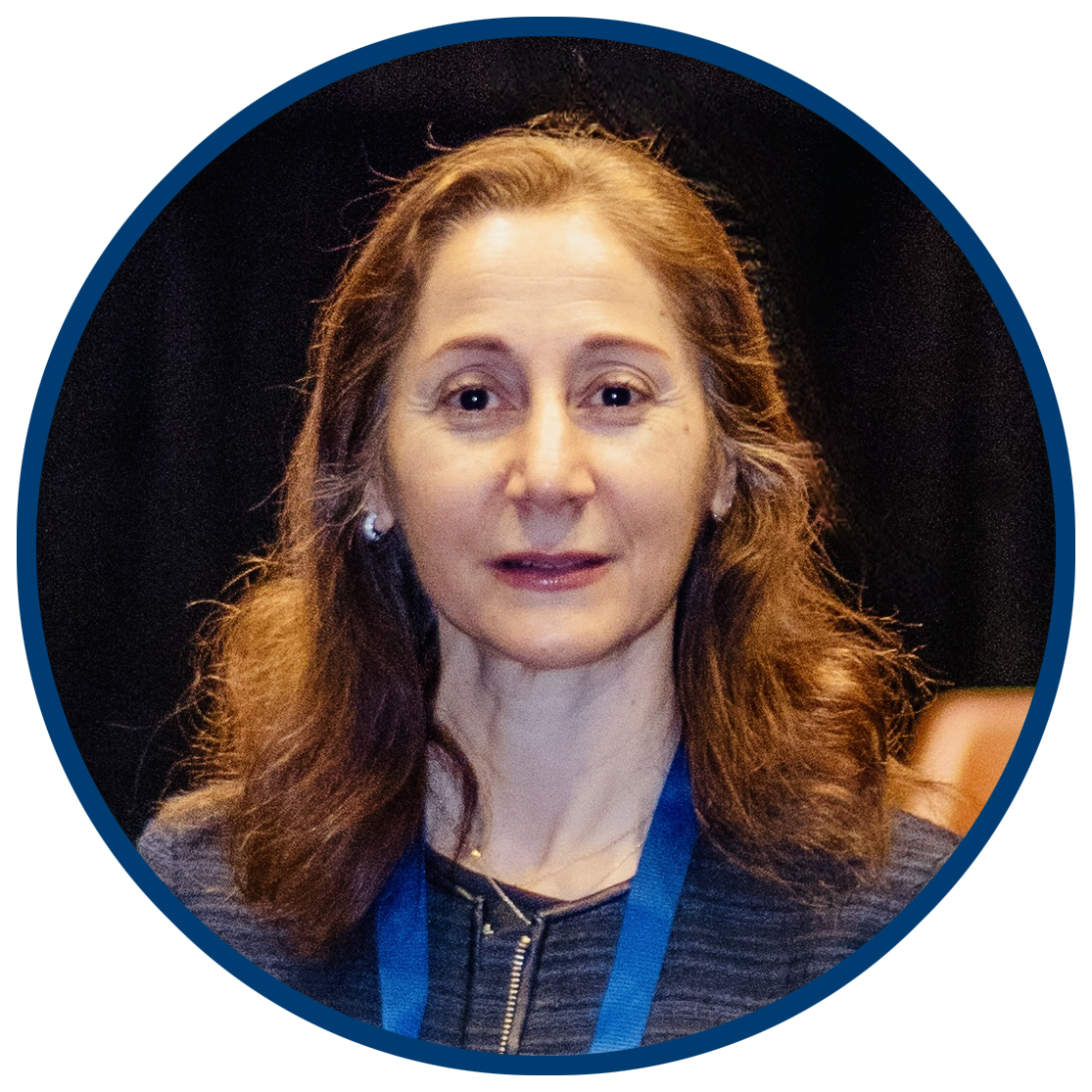 mahassen Ramadan is a doctoral student in Social Justice Education with a Collaborative Specialization in ‘Francophonie et Diversité’ at the Ontario Institute for Studies in Education (OISE) - University of Toronto. As an awardee of an OISE Graduate Funding Office scholarship, her doctoral research explores cultural and social representations in both formal and informal teaching and learning realms, including public pedagogy.
mahassen Ramadan is a doctoral student in Social Justice Education with a Collaborative Specialization in ‘Francophonie et Diversité’ at the Ontario Institute for Studies in Education (OISE) - University of Toronto. As an awardee of an OISE Graduate Funding Office scholarship, her doctoral research explores cultural and social representations in both formal and informal teaching and learning realms, including public pedagogy.
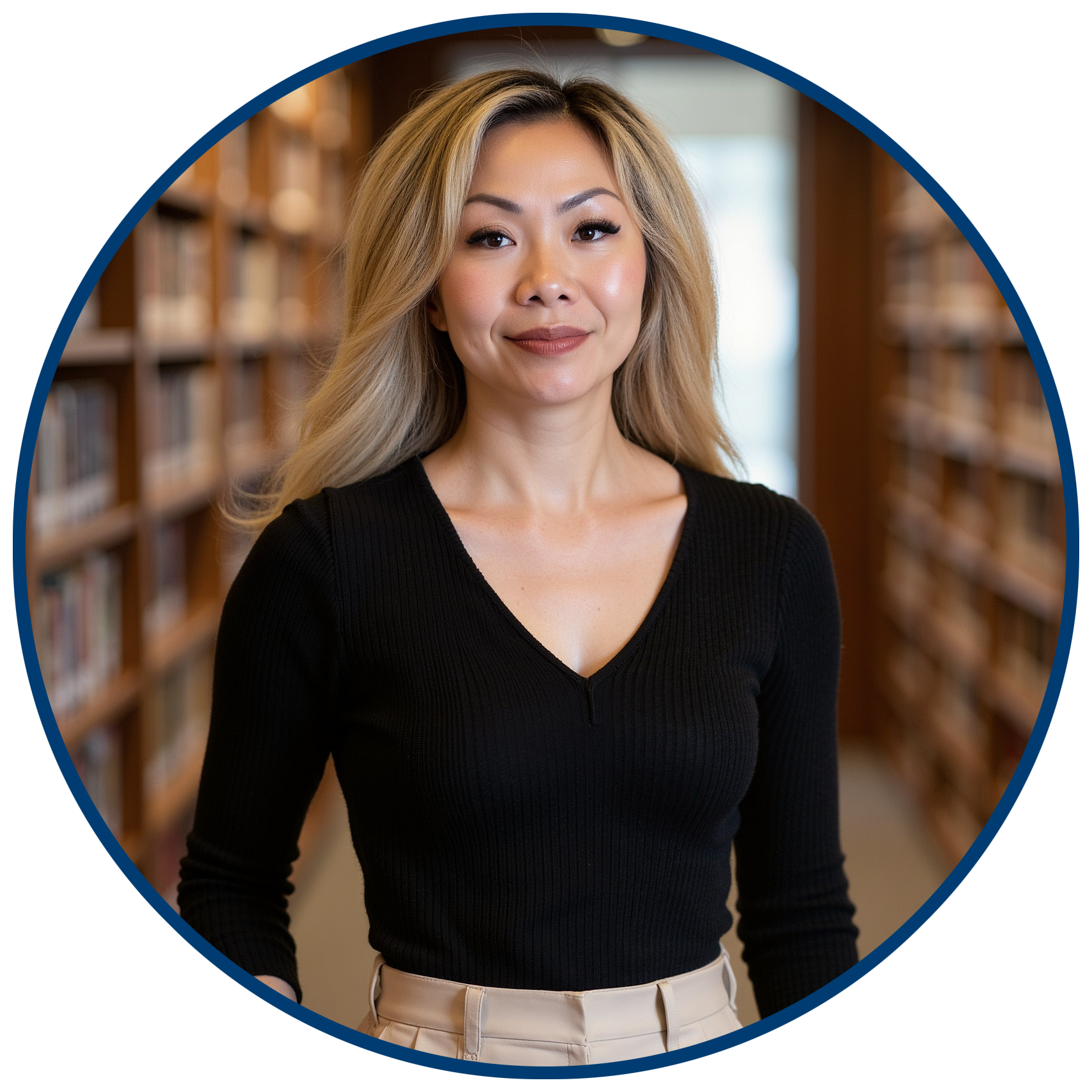 Lovisa Fung is a curriculum developer, faculty lecturer, and public speaker. She earned her Ph.D. in Curriculum and Pedagogy from the Ontario Institute for Studies in Education (OISE) at the University of Toronto. As a multi-award-winning educator, her expertise includes curriculum reform, hermeneutical inquiry, and preservice teacher development. Her doctoral research focuses on transformative digital storytelling in teacher education.
Lovisa Fung is a curriculum developer, faculty lecturer, and public speaker. She earned her Ph.D. in Curriculum and Pedagogy from the Ontario Institute for Studies in Education (OISE) at the University of Toronto. As a multi-award-winning educator, her expertise includes curriculum reform, hermeneutical inquiry, and preservice teacher development. Her doctoral research focuses on transformative digital storytelling in teacher education.
From AI Arbitrage to Postplagiarism: Reimagining Academic Integrity in Ontario Secondary Schools
As students increasingly use AI for assignments, educators need a structured approach to maintain academic integrity. Learn how to implement the "two-lane" assessment framework and embrace post-plagiarism policies that balance innovation with educational standards.
Participants will learn to implement the University of Sydney's "two-lane" assessment approach in Ontario schools, understand a "postplagiarism" framework, and develop a coordinated academic integrity strategy involving all stakeholders in this AI era.
Through Mentimeter polling to gather real-time perspectives on AI use in schools, guided exploration of Eaton's postplagiarism framework, and collaborative discussion on implementing the two-lane assessment approach in Ontario classrooms.
- Session Time: 3:30 pm - 4:30 pm
- Format: Round Table Discussion
- Themes: Pedagogical Innovation, Digital Innovation
- Audience & Subject: Secondary school educators and administrators grappling with AI's impact on academic integrity will gain practical strategies to reimagine assessment practices and navigate the current era of "AI arbitrage" in Ontario schools.
 Myke Healy leads academic innovation and AI integration at Trinity College School in Port Hope, Ontario, as Assistant Head – Teaching & Learning. As chair of the School's AI Task Force, he shapes institutional strategy on ethical AI implementation while overseeing faculty development. He has presented on AI and education for the Conference of Independent Schools of Ontario, the Canadian Accredited Independent Schools Association, and the Independent Schools Association of British Columbia. A doctoral student at the University of Calgary's Werklund School of Education, his research examines postplagiarism and the intersection of generative AI and academic integrity in K-12 education under Dr. Sarah Eaton's supervision. He currently serves as a research assistant on a University of Calgary study funded by the Taylor Institute: "AI3: Teaching and Learning at the intersection of Artificial Intelligence, Academic Integrity, and Assessment Innovation."
Myke Healy leads academic innovation and AI integration at Trinity College School in Port Hope, Ontario, as Assistant Head – Teaching & Learning. As chair of the School's AI Task Force, he shapes institutional strategy on ethical AI implementation while overseeing faculty development. He has presented on AI and education for the Conference of Independent Schools of Ontario, the Canadian Accredited Independent Schools Association, and the Independent Schools Association of British Columbia. A doctoral student at the University of Calgary's Werklund School of Education, his research examines postplagiarism and the intersection of generative AI and academic integrity in K-12 education under Dr. Sarah Eaton's supervision. He currently serves as a research assistant on a University of Calgary study funded by the Taylor Institute: "AI3: Teaching and Learning at the intersection of Artificial Intelligence, Academic Integrity, and Assessment Innovation."
At the Intersection of Culture-Based Learning and STEAM: Innovations in Elementary Education
Educators may gain insights into how to engage in local partnerships and strategies for the co-development of culturally sustaining STEAM learning experiences. They also may get ideas for some activities they could adapt to their own local context, and some tools and technologies they might want to integrate into their classroom.
We plan to share the culturally sustaining/STEAM/maker resources and tools with participants and generate discussion on how similar learning experiences could be co-developed in the participants’ contexts.
- Time: 3:30 pm - 4:00 pm
- Format: Presentation
- Theme: Pedagogical Innovation
- Audience & Subject: This session will explore the development of culturally sustaining STEAM resources and activities in the K-12 setting and some of the maker tools and technologies we used in our study.
If you are looking for ways to expand your practice in their area of inclusion, STEAM and a maker approach to education, this session is for you!
 Dr Laura Morrison is an Assistant Professor in the Mitch and Leslie Frazer Faculty of Education at Ontario Tech U. Her research explores innovative educational structures and emerging technologies to create more accessible, equitable and inclusive learning environments. The goal is to help students develop the skills they need to navigate and engage with the world effectively, critically and meaningfully. Specifically, her work focuses on developing students’ critical digital literacies skills (including AI literacy), identifying promising practices for online and hybrid-flexible (HyFlex) teaching and learning, and using “making” and culturally sustaining pedagogies to foster inclusion.
Dr Laura Morrison is an Assistant Professor in the Mitch and Leslie Frazer Faculty of Education at Ontario Tech U. Her research explores innovative educational structures and emerging technologies to create more accessible, equitable and inclusive learning environments. The goal is to help students develop the skills they need to navigate and engage with the world effectively, critically and meaningfully. Specifically, her work focuses on developing students’ critical digital literacies skills (including AI literacy), identifying promising practices for online and hybrid-flexible (HyFlex) teaching and learning, and using “making” and culturally sustaining pedagogies to foster inclusion.
 Dr Phaedra Robinson has spent over 30 years teaching, from pre-k to college, and holds a B.S., M.Ed., and Ph.D. in Education. She is the founder of an Ed Tech STEAM Out-of-School/After-School program whose mission is to cultivate technological literacy and creativity with place based learning activities. Her research interests are in the use of “maker” pedagogies and the implementation of Hawaiian Culture Based Education to foster STEM inclusion and engagement for all students in Hawai’i. Phaedra is a world traveler, wife, dog-mom, and an enthusiast of both ocean and mountain adventures.
Dr Phaedra Robinson has spent over 30 years teaching, from pre-k to college, and holds a B.S., M.Ed., and Ph.D. in Education. She is the founder of an Ed Tech STEAM Out-of-School/After-School program whose mission is to cultivate technological literacy and creativity with place based learning activities. Her research interests are in the use of “maker” pedagogies and the implementation of Hawaiian Culture Based Education to foster STEM inclusion and engagement for all students in Hawai’i. Phaedra is a world traveler, wife, dog-mom, and an enthusiast of both ocean and mountain adventures.
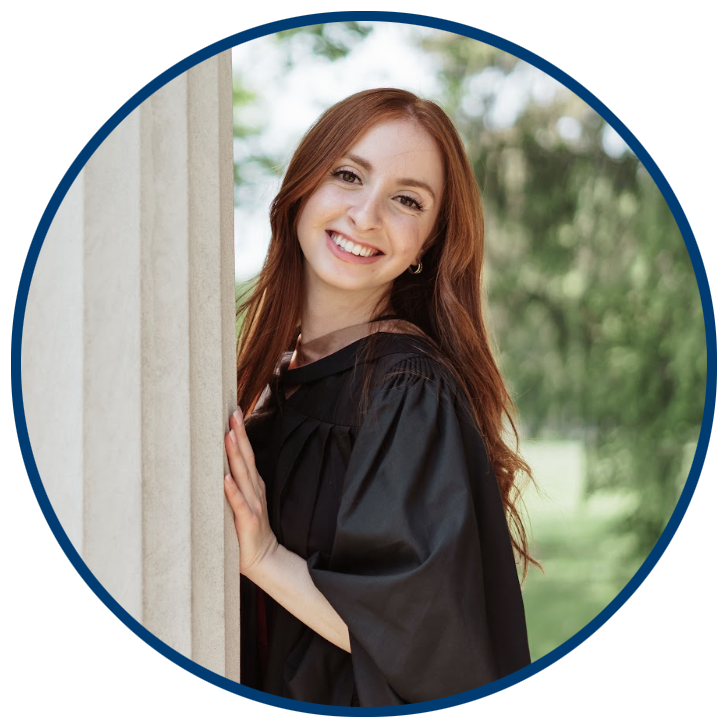
Rosanna Nusseiri is a research assistant at Ontario Tech University. Her work focuses on providing culture-based STEAM education to students in rural Hawai‘i. Rosanna is also a graduate student at Ontario Tech University, pursuing a Master’s of Education. Her research interest lies in teaching and learning strategies to develop artificial intelligence literacy to students in post-secondary education.
Chatting with Al Capone: Exploring the Social, Intercultural, and Emotional Affordances of Virtual Conversational Agents in Language Learning
If you’ve ever enthusiastically told Alexa that you loved her, (e.g., after she reminded you of an appointment you’d forgotten), you’ll know that she bursts into song in response. If you’ve heard the stories of people using artificial intelligence (AI) to communicate with deceased loved ones, or of people having romantic relationships with their AI companions, you’ll know that natural language processing (NLP) has allowed humans to engage with technology in ways that were once thought unimaginable. The pragmatics of social interactions involving emotion are a necessary skill for language learners to master. Socio-emotional interactions require linguistic agility, socio-emotional intelligence, and intercultural competence, yet our own investigation of virtual reality language learning apps has uncovered very limited focus on the development of these skills. Those with an interest in SEL and intercultural competence (in addition to language learning) will find this session interesting!
Participants will come away with a solid understanding of the social, intercultural, and emotional affordances and limitations of virtual conversational agents (generative AI systems) with a particular focus on language learning.
The session will consist of a presentation of three apps (Duolingo, ImmerseMe and MakesYouFluent) , along with screenshots of conversations between the researchers and the embodied conversational agents within each of these apps. We look forward to a rich discussion on how to improve AI-driven interactions that include, for example, expressing sympathy or regret, reacting to offensive remarks, and comforting a friend in need of emotional support.
- Time: 4:00 pm - 4:30 pm
- Format: Presentation
- Themes: Teaching for Innovation
- Audience & Subject: This session will compare a number of different low virtual reality apps for langauge learning. We will discuss the pros, cons and authenticity of the interactions between the learner and the virtual embodied conversational agents. It will be of particular interest to language teachers and language learners, and to K-12 educators with English language learners in their classrooms.

Dr. Allyson Eamer is Associate Dean at the Mitch and Leslie Frazer Faculty of Education, Ontario Tech University. As a sociolinguist, she researches the inter-relationships between language learning, linguistic choices and social encounters including identity development, acculturation and curriculum design. Currently her work focuses on primary and secondary trauma in the language learning classroom.

Nisha Srignaesh (M.Ed in Educational linguistics) is a doctoral student (Ed.D) at the Mitch and Leslie Frazer Faculty of Education, Ontario Tech University. She has over 15 + years of experience teaching English as a second language and Spanish and French as foreign languages in diverse academic settings. Nisha’s rich linguistic background and passion for emerging technologies shape her work at the intersection of language pedagogy and affective learning. Currently, her work focuses on the intersection of AI-driven and VR technologies and their impact on social emotional learning and intercultural competence among language learners, particularly within higher education.
Fun Meets Function: Leveraging Playful AI for Higher Education Student Engagement
Acknowledging that students require internal motivation to achieve their goals, we, as university educators, can still enhance their learning achievement with fun or playful motivational snacks along their journey to increase their engagement. Specifically, for this presentation, with artificial intelligence (AI) aided resources. Fun and play can enhance cognitive and social development to create an engaging, inclusive learning environment, foster internal motivation, enhance comprehension, and develop modern competencies. Higher education student engagement is multi-dimensional and consists of affective, behavioural, and cognitive aspects. Affective engagement refers to students’ enthusiasm, enjoyment and motivation, while behavioural engagement is associated with active interaction and participation, and cognitive engagement promotes critical and deep thinking. Each aspect, in turn, is associated with effective teaching practices that promote active, high-impact learning experiences. In this presentation, we will share three easily-integrated AI resources that align with andragogical and pedagogical teaching and learning practices—a critical element for the successful application of digital technologies in educational environments. We will present evidence-informed insight and simple examples along with opportunities for participants to actively participate to cultivate their own engaging environments that develop lifelong learning and skill development.
- Time: 4:30 pm - 5:00 pm
- Format: Presentation
- Themes: Digital Innovation, Teaching for Innovation
- Audience & Subject: Students and educators interested in artificial intelligence (AI) aided resources for engagement in Higher Education, Workplace Training and Learning.
 Chris D. Craig is passionate about education and has diverse life experiences outside of academia, which include the arts, business, construction, entertainment, and health. With a focus on adult education, he aims to establish and promote actionable insight for educators and students alike with the vision of supporting learner self-concept: Who they are in the environment context. Chris is a geek with a diverse educational background—Ed.D.(c), M.Ed., B.A., A.S.-PE., post-secondary certificates in art and business, and professional fitness and project management certifications.
Chris D. Craig is passionate about education and has diverse life experiences outside of academia, which include the arts, business, construction, entertainment, and health. With a focus on adult education, he aims to establish and promote actionable insight for educators and students alike with the vision of supporting learner self-concept: Who they are in the environment context. Chris is a geek with a diverse educational background—Ed.D.(c), M.Ed., B.A., A.S.-PE., post-secondary certificates in art and business, and professional fitness and project management certifications.
 Dr. Sharon Lauricella is a full professor at Ontario Tech, and is cross-appointed between the Faculty of Education and Faculty of Social Science. Sharon holds a doctoral degree from the University of Cambridge (UK) and a Certificate in Higher Education Teaching from the Derek Bok Center for Teaching and Learning at Harvard University. Her research focuses on teaching with technology, mental health of undergraduate students, and the value of fun and play in higher education.
Dr. Sharon Lauricella is a full professor at Ontario Tech, and is cross-appointed between the Faculty of Education and Faculty of Social Science. Sharon holds a doctoral degree from the University of Cambridge (UK) and a Certificate in Higher Education Teaching from the Derek Bok Center for Teaching and Learning at Harvard University. Her research focuses on teaching with technology, mental health of undergraduate students, and the value of fun and play in higher education.
Day 2 - Saturday, April 5, 2025 - Morning Sessions
- From digital storytelling to design fiction: pedagogical innovations in AI education for K-12
- Fostering Student Engagement: Community of Inquiry Framework for designing online discussions
- "Beyond the Welcome Banner: Unmasking the Discrimination Against International Students in North American Universities"
- Bridging the resources gap for AI education (freely available and research-based)
- "Cyborg Confidence": How AI Dialogue is Rewriting Educational Agency
- Level Up! Gamified Digital Skills and AI for Engaged Learning
- Voices across Cultures: Leveraging Digital Storytelling to Enhance Virtual Global Learning
- New Narratives of AI: Artificial Sociality and Emerging Trends on Social Media
- Toxic Masculinity: Exploring the Affective Impact of Labels on the Learning Environment
- Empowering the future with Multilinguality and Language Diversity
- Combining digital and pedagogical innovations to enhance learning: implications of a French class study
From digital storytelling to design fiction: pedagogical innovations in AI education for K-12
This session offers practical insights into how DFP addresses DST’s limitations by fostering scientific inquiry, future-oriented thinking, and ethical reflection in AI education. Attendees will gain actionable strategies to prepare students for an AI-driven world.
Participants will learn the Design Fiction Pedagogy model and how to implement it to enhance Digital Storytelling in AI education. They will gain strategies to foster AI literacy, critical thinking, and ethical reflection, preparing students for future AI challenges.
The session will include interactive discussions, real-world case studies, and hands-on activities. Participants will explore the DFP model, analyze student projects, and brainstorm ways to integrate future-oriented storytelling into their AI education practices.
- Time: 10:00 am - 10:30 am
- Format: Presentation
- Themes: Pedagogical Innovation, Digital Innovation
- Audience & Subject: Educators, curriculum designers, and researchers will benefit from learning how Design Fiction Pedagogy (DFP) enhances Digital Storytelling (DST) to improve AI education. This session provides strategies for fostering AI literacy, critical thinking, and ethical reflection in K-12 classrooms.
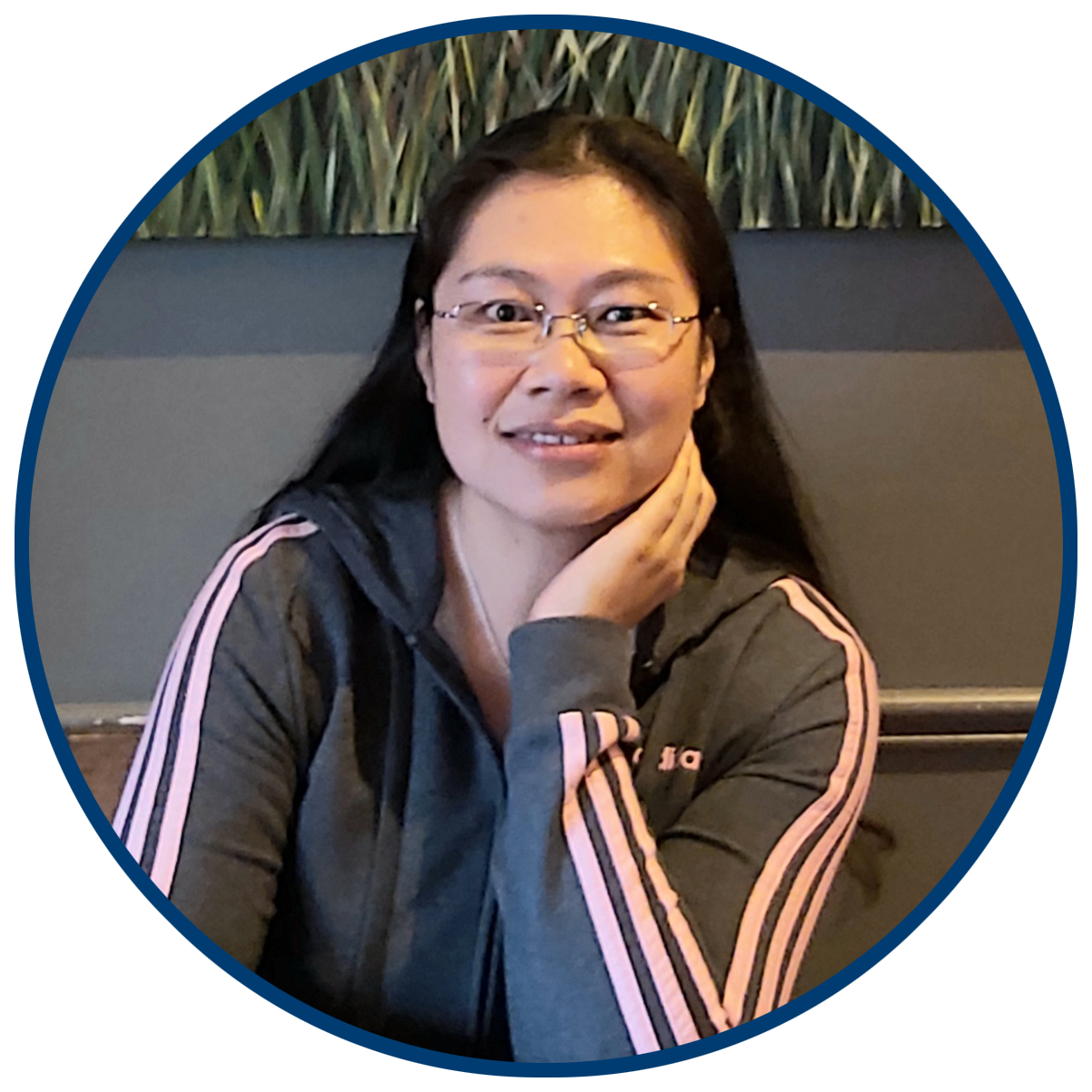 Li Li, Ph.D. is a researcher and educator specializing in AI education and pedagogy innovation. She recently earned her Ph.D. in Education from Western University, Canada. Her work focuses on integrating Design Fiction Pedagogy (DFP) to enhance AI literacy, critical thinking, and ethical reflection in K-12 classrooms. Dr. Li has contributed to AI education projects, designed and instructed AI camps, led teacher training sessions, and published extensively in peer-reviewed journals. With a strong background in AI education and curriculum development, she is committed to developing innovative teaching strategies that prepare students for an AI-driven future.
Li Li, Ph.D. is a researcher and educator specializing in AI education and pedagogy innovation. She recently earned her Ph.D. in Education from Western University, Canada. Her work focuses on integrating Design Fiction Pedagogy (DFP) to enhance AI literacy, critical thinking, and ethical reflection in K-12 classrooms. Dr. Li has contributed to AI education projects, designed and instructed AI camps, led teacher training sessions, and published extensively in peer-reviewed journals. With a strong background in AI education and curriculum development, she is committed to developing innovative teaching strategies that prepare students for an AI-driven future.
Fostering Student Engagement: Community of Inquiry Framework for designing online discussions
This session will provide practical strategies to improve social, cognitive, and teaching presence in online discussions. Drawing from literature and real-world examples can lead to improved student engagement, deeper learning, and more meaningful interactions in online learning.
Participants will learn how to implement strategies for social, cognitive, and teaching presence to increase student engagement in online discussions. They'll also learn how to design effective discussion prompts that promote higher-order thinking and collaborative learning.
The session will begin with an overview of key strategies from the literature. Then, we will explore real-world examples to see how these strategies are applied in practice. Drawing from literature and real-world practice, participants will engage in collaborative discussions, reflect on their own experiences, and explore ways to improve online discussion design using the Community of Inquiry (CoI) framework—focusing on social, cognitive, and teaching presence.
- Session Time: 10:00 am - 11:00 am
- Format: Round Table Discussion
- Theme: Teaching for Innovation
- Audience & Subject: This session will explore practical strategies for Instructors, instructional designers, and anyone involved in developing online and blended learning environments in post-secondary education to create engaging and effective online discussions that foster students’ deeper learning and meaningful interactions.
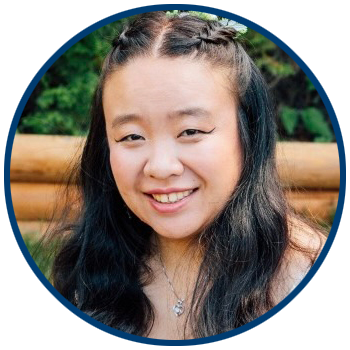 WanQi (Belinda) Jin, M.Ed. is a learning technology specialist at Simon Fraser University (SFU) Lifelong Learning and a doctoral student in Learning Sciences at the Werklund School of Education, University of Calgary. With over eight years of experience in post-secondary institutions and non-profit organizations, such as SFU and Immigrant Employment Council of BC, she specializes in online and blended learning, instructional design, and teacher education. Belinda has extensive expertise in designing, implementing, and managing training programs. She is certified in various learning technology tools, including Canvas and Adobe, and is a certified facilitator for Instructional Skills Workshop and Quality Matters. Her research focuses on active learning strategies in asynchronous online courses, exploring how course design and assessment impact student engagement and teacher presence. Committed to equity and inclusion, she aims to foster meaningful, accessible, and inclusive online learning environments.
WanQi (Belinda) Jin, M.Ed. is a learning technology specialist at Simon Fraser University (SFU) Lifelong Learning and a doctoral student in Learning Sciences at the Werklund School of Education, University of Calgary. With over eight years of experience in post-secondary institutions and non-profit organizations, such as SFU and Immigrant Employment Council of BC, she specializes in online and blended learning, instructional design, and teacher education. Belinda has extensive expertise in designing, implementing, and managing training programs. She is certified in various learning technology tools, including Canvas and Adobe, and is a certified facilitator for Instructional Skills Workshop and Quality Matters. Her research focuses on active learning strategies in asynchronous online courses, exploring how course design and assessment impact student engagement and teacher presence. Committed to equity and inclusion, she aims to foster meaningful, accessible, and inclusive online learning environments.
"Beyond the Welcome Banner: Unmasking the Discrimination Against International Students in North American Universities"
Attendees will leave with a clearer understanding of:
- The Impact of Discrimination on Academic Success – Learn how subtle and overt biases from faculty and administrative staff create obstacles for international students, affecting their grades, participation, and overall engagement in their studies.
- Institutional Responsibility & Policy Implications – Understand how universities and colleges must evolve to uphold their commitments to diversity, equity, and inclusion, ensuring that international students receive fair and equal treatment.
- The Broader Consequences of Inaction – Discover the potential repercussions of failing to address these challenges, including declining enrollment rates, damage to institutional reputation, and a loss of global talent.
- Strategies for Change & Advocacy – Gain insights into possible policy reforms, institutional initiatives, and personal actions that can foster a more supportive and equitable academic environment.
Examining Discrimination Against International Students in Higher Education Institutions. The Urgent Need for Policies to Ensure Student Safety and Well-Being. Recognizing the Prevalence of Discriminatory Practices in Higher Education Addressing Research Gaps in the Study of International Student Discrimination. Implications of This Research for Higher Education Institutions and Future International Students.
This session offers a critical exploration of the discrimination that international students face within higher education institutions, particularly from administrative staff and faculty members. By attending, you will gain a deeper understanding of how these discriminatory practices impact students’ academic performance, well-being, and overall success. This discussion will highlight the systemic inequities embedded within institutions and emphasize the urgent need for policy reforms and institutional changes to foster an inclusive and supportive academic environment.
- Session Time: 10:00 am - 11:00 am
- Format: Round Table Discussion
- Themes: Pedagogical Innovation, Structural Innovation, Teaching for Innovation
- Audience & Subject: International Students – Gain validation and insight into the challenges you may face and learn about potential advocacy strategies. Faculty and Administrative Staff – Understand how institutional biases affect international students and explore ways to foster a more inclusive environment. Higher Education Leaders & Policymakers – Learn about the broader implications of discrimination on institutional reputation, enrollment, and student success, and discover strategies for meaningful policy reforms. Researchers & Academics – Engage with a critical discussion on systemic inequities in higher education and explore areas for further research. Student Support Services & Advocates – Develop a better understanding of the barriers international students face and identify ways to provide more effective support.
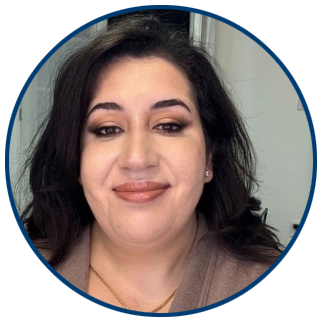 Behnoush Shafiei Sararoodi is an International Education Officer at Ontario Tech University and a Regulated Immigration Consultant (RCIC). Her work is dedicated to supporting international students in navigating Canadian immigration policies while also assisting domestic students and scholars in pursuing educational opportunities abroad. Passionate about fostering inclusivity in higher education, Behnoush actively explores ways to support international students through the lens of Equity, Diversity, and Inclusion (EDI) and Critical Race Theory.
Behnoush Shafiei Sararoodi is an International Education Officer at Ontario Tech University and a Regulated Immigration Consultant (RCIC). Her work is dedicated to supporting international students in navigating Canadian immigration policies while also assisting domestic students and scholars in pursuing educational opportunities abroad. Passionate about fostering inclusivity in higher education, Behnoush actively explores ways to support international students through the lens of Equity, Diversity, and Inclusion (EDI) and Critical Race Theory.
Bridging the resources gap for AI education (freely available and research-based)
This presentation contributes to conversations about AI education in general, the intersection of AI education and mathematics education, and the development and research of AI mathematics curricula and teaching and learning resources across K-12.
The first part of the presentation will share and discuss freely available AI education resources related to AI applications, societal implications, and AI ethics. The second part of the presentation will investigate how AI mathematics curricula may be designed for younger students. By engaging in hands-on activities, attendees will learn about freely available AI Education resources to use and share with colleagues.
- Time: 10:30 am - 11:00 am
- Format: Presentation
- Theme: Pedagogical Innovation
- Audience & Subject: Educators and researchers interested in the development and research of AI mathematics curricula and teaching and learning resources across K-12.
 George Gadanidis is a professor of mathematics and technology at Western University (see imaginethis.ca). The work shared comes from Western's Leading AI Education project, available at ai-ed.ca
George Gadanidis is a professor of mathematics and technology at Western University (see imaginethis.ca). The work shared comes from Western's Leading AI Education project, available at ai-ed.ca

Li Li, Ph.D. is a researcher and educator specializing in AI education and pedagogy innovation. She recently earned her Ph.D. in Education from Western University, Canada. Her work focuses on integrating Design Fiction Pedagogy (DFP) to enhance AI literacy, critical thinking, and ethical reflection in K-12 classrooms. Dr. Li has contributed to AI education projects, designed and instructed AI camps, led teacher training sessions, and published extensively in peer-reviewed journals. With a strong background in AI education and curriculum development, she is committed to developing innovative teaching strategies that prepare students for an AI-driven future.
"Cyborg Confidence": How AI Dialogue is Rewriting Educational Agency
My unique AI tools, specifically developed for this conference, will not only tell but show how AI changes and enhances our collective educational landscape by making it more accessible, inclusive, equitable and ethical.
The main takeaways will be a set of digital AI-powered tools that I developed for use in the classroom.
- Time: 11:00 am - 11:30 am
- Format: Presentation
- Theme: Pedagogical Innovation
- Audience & Subject: Higher Education professionals, academics, researchers and school teachers
 Dr. Olga Shugurova, PhD, is an award-winning educator and educator currently serving as a Visiting Professor at Jackson State University, specializing in curriculum development and the interdisciplinary integration of artificial intelligence in education. Her research centers on learner-centered pedagogies, dialogical self-theory, and the transformative potential of AI as a dialogic partner. Dr. Shugurova recently published research on ChatGPT4’s dialogical self-potential in Culture & Psychology under the leadership of Dr. Matusov and with Dr. Smith, and has a forthcoming chapter "Self-authorship mediated by a visual dialogue with AI: A student's story of mental wellbeing in experiential learning" in Pedagogical Mediation in the Digital Era (UNAD, Virtualex Research Group, 2025). Her ongoing work explores educational possibilities of Large Language Models (LLMs) and Multi-Modal Models (MMs) within dialogic, democratic, experiential, and immersive learning contexts. Dr. Shugurova's research on students' AI-induced emotions has been accepted for the 2025 European Association for Research on Learning and Instruction (EARLI) conference at the University of Graz, Austria, and she serves on the committee for the 6th International Conference on Artificial Intelligence in Education Technology (AIET) in Munich.
Dr. Olga Shugurova, PhD, is an award-winning educator and educator currently serving as a Visiting Professor at Jackson State University, specializing in curriculum development and the interdisciplinary integration of artificial intelligence in education. Her research centers on learner-centered pedagogies, dialogical self-theory, and the transformative potential of AI as a dialogic partner. Dr. Shugurova recently published research on ChatGPT4’s dialogical self-potential in Culture & Psychology under the leadership of Dr. Matusov and with Dr. Smith, and has a forthcoming chapter "Self-authorship mediated by a visual dialogue with AI: A student's story of mental wellbeing in experiential learning" in Pedagogical Mediation in the Digital Era (UNAD, Virtualex Research Group, 2025). Her ongoing work explores educational possibilities of Large Language Models (LLMs) and Multi-Modal Models (MMs) within dialogic, democratic, experiential, and immersive learning contexts. Dr. Shugurova's research on students' AI-induced emotions has been accepted for the 2025 European Association for Research on Learning and Instruction (EARLI) conference at the University of Graz, Austria, and she serves on the committee for the 6th International Conference on Artificial Intelligence in Education Technology (AIET) in Munich.
Level Up! Gamified Digital Skills and AI for Engaged Learning
This session explores how AI-driven gamification can transform learning by fostering deeper engagement, problem-solving, and personalized learning pathways. Attendees will gain insights into research-backed methods for digital skill-building.
Through interactive tool demonstrations, real-world case studies, and collaborative problem-solving, participants will experience gamified learning in action and develop strategies to apply these methods in their own classrooms.
- Time: 11:00 am - 11:30 am
- Format: Presentation
- Themes: Digital Innovation, Teaching for Innovation
- Audience & Subject: Educators, administrators, and leaders seeking to enhance student engagement through gamified learning and AI tools. This session will provide practical strategies to create interactive, digital-first learning experiences.
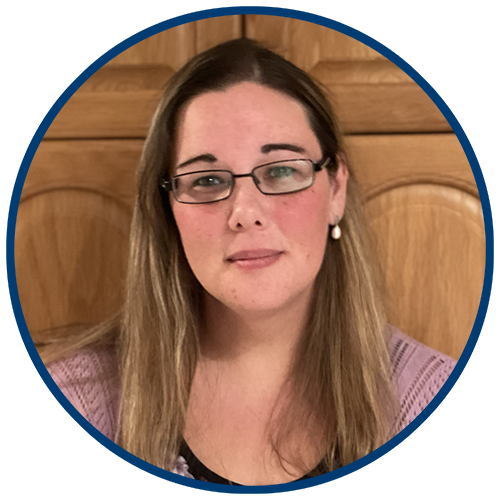 Amanda Paul, OCT is a doctoral candidate in Educational Leadership and Policy at OISE, University of Toronto. A business and technology educator with the Durham District School Board, she focuses on digital innovations, process-oriented education, and capacity building for educators. Amanda provides professional development on AI and emerging technologies, helping educators enhance student engagement through innovative tools and assessment strategies. Passionate about reimagining education, she advocates for adaptable, future-focused approaches that prepare educators and students for success in a digital world.
Amanda Paul, OCT is a doctoral candidate in Educational Leadership and Policy at OISE, University of Toronto. A business and technology educator with the Durham District School Board, she focuses on digital innovations, process-oriented education, and capacity building for educators. Amanda provides professional development on AI and emerging technologies, helping educators enhance student engagement through innovative tools and assessment strategies. Passionate about reimagining education, she advocates for adaptable, future-focused approaches that prepare educators and students for success in a digital world.
Voices across Cultures: Leveraging Digital Storytelling to Enhance Virtual Global Learning
DST learning tool helps learners understand, analyze, and create digital stories using multimedia and generative AI, fostering multimodal skills, AI literacy, and intercultural competence. Participants will gain hands-on experience in DST production, explore culturally embedded DST practices, and receive insights into virtual global learning theories and global partnerships. They will engage in activities that include interactive discussions, live polls, and reflective feedback.
- Session Time: 11:00 am - 12:00 pm
- Format: Round Table Discussion
- Theme: Pedagogical Innovation, Teaching for Innovation
- Audience & Subject: This session will provide a self-directed learning tool on digital storytelling (DST), designed for students and educators engaged in global learning to enhance cultural self-awareness and intercultural understanding.
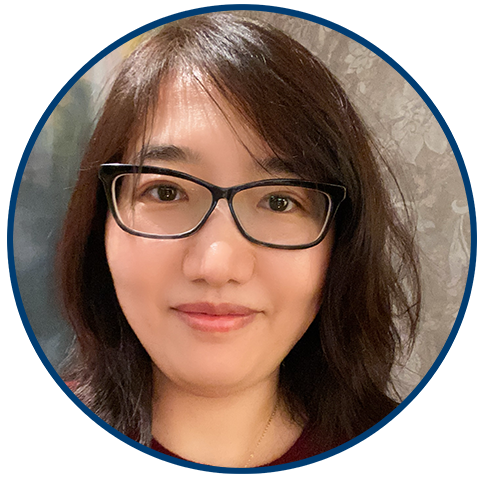 Lingling Zuo is a Doctoral Student in Education at Ontario Tech University. Her research focuses on international education, global competencies, technology-enhanced instructional innovation, and online intercultural exchanges. Through her work, she explores effective strategies to enhance global learning in digital environments.
Lingling Zuo is a Doctoral Student in Education at Ontario Tech University. Her research focuses on international education, global competencies, technology-enhanced instructional innovation, and online intercultural exchanges. Through her work, she explores effective strategies to enhance global learning in digital environments.
New Narratives of AI: Artificial Sociality and Emerging Trends on Social Media
Explore how individuals are using ChatGPT and new experiences are shared among users of social media. Gain insights into AI’s social role, its impact on human relationships, and implications for Critical AI Literacy, education, and policy.
Attendees will explore the evolving dynamics of social trends in AI use and gain practical strategies for integrating critical AI literacy into professional practice to help them navigate AI-student relationships with a greater awareness and insight.
Participants will explore real TikTok examples, participate in interactive discussions, and exchange ideas to address AI's evolving role in ours and our students' social lives. Through shared experiences and discussions, participants will consider how these emerging AI trends may shape student experiences with technology.
- Session Time: 11:00 am - 12:00 pm
- Format: Round Table Discussion
- Theme: Digital Innovation
- Audience & Subject: As AI like ChatGPT embeds into daily life, TikTok reveals new narratives of artificial sociality. This session explores how users engage with AI as a friend, therapist, or moral agent, reshaping perceptions of AI in human relationships.

Tess Butler-Ulrich is a Doctor of Education student at Ontario Tech University. Her work focuses on Critical AI Literacy and explores how AI shapes digital culture, education, and society. She examines AI’s role in human interactions, which emphasizing social and ethical awareness, empowerment, and practical strategies for AI literacy to foster adaptive and innovative learning environments.
Toxic Masculinity: Exploring the Affective Impact of Labels on the Learning Environment
Recognizing the affective relationship between language, media and identity will become ever more important as society copes with the existential questions raised by AI.
Through a group discussion participants will have an opportunity to clarify their own perceptions around power dynamics in a learning space. Participants will unpack strategies currently being employed to shift behaviour.
An initial affective presentation will lead to a question and answer session that will provide an opportunity to solidify framings of social action.
- Session Time: 11:00 am - 12:00 pm
- Format: Round Table Discussion
- Theme: Teaching for Innovation
- Audience & Subject: This session will explore the atmospheric impact the public discussion of toxic masculinity is having on K-12; this will develop participants awareness of the interconnection between politics, publics and social media.
 Ryan Jones is a current EdD student at the University of Calgary, working under Dr. Kehler. He explores the balance between masculine pride and shame in the classroom through an affective lens of emotional awareness. Ryan's current research is looking at the effects of toxic masculinity discourse on the learning environment for High School boys and how this may affect their achievement emotions.
Ryan Jones is a current EdD student at the University of Calgary, working under Dr. Kehler. He explores the balance between masculine pride and shame in the classroom through an affective lens of emotional awareness. Ryan's current research is looking at the effects of toxic masculinity discourse on the learning environment for High School boys and how this may affect their achievement emotions.
Empowering the future with Multilinguality and Language Diversity
This session provides teachers with a curriculum featuring state-of-the-art natural language processing methods, emphasizing multilinguality and language diversity, to prepare students for industry.
Learn to teach cutting-edge natural language processing with limited computing power, integrating multilingual AI and industry-ready skills. Future-proof your curriculum and empower students in this session!
I will engage participants by connecting natural language processing topics to multilinguality and language diversity, using real-world examples and discussions to explore how these concepts can be applied in classrooms.
- Time: 11:30 am - 12:00 pm
- Format: Presentation
- Themes: Digital Innovation, Teaching for Innovation
- Audience & Subject: The session will explore how digital technology and innovative pedagogical approaches can be combined to develop teaching units that enhance student learning.
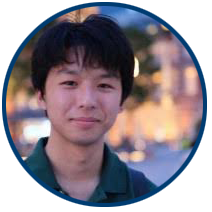
Mason Shipton is a second-year Computer Science student at Ontario Tech University. He is a research assistant at Lee Language Lab under Dr. En-Shiun Annie Lee where he works to make language technology more inclusive and accessible. This included his team’s recent publication, URIEL+, which expands a popular language knowledge base to low-resource languages.
Combining digital and pedagogical innovations to enhance learning: implications of a French class study
The teaching unit developed combined the benefits of digital technology and innovative teaching practices to help students improve their writing skills in French. However, the approach has implications and applications for other courses and learning contexts that will be explored during the session.
The key takeway is that adopting an empowerment perspective for both students and instructors allows us to explore and develop teaching approaches that incorporate the use of digital technology to enhance student learning.
Through a combination of presentation, demonstration and active engagement, participants will be introduced to various elements of the teaching unit and research. This will be followed by a discussion to explore the implications and applications of the process in different contexts.
- Time: 11:30 am - 12:00 pm
- Format: Presentation
- Themes: Pedagogical Innovation, Digital Innovation
- Audience & Subject: The session will explore how digital technology and innovative pedagogical approaches can be combined to develop teaching units that enhance student learning.
 Laura Hermans-Nymark, PhD, is an Assistant Professor in the College of Education at Niagara University Ontario. Her research focuses on the use of the Common European Framework of Reference of languages (CEFR) in the teaching, learning and assessment of second and foreign languages. She leads projects such as the development of a digital, high-stakes language assessment for ESL and FSL and develops OER pedagogical resources such as Jaser en français.
Laura Hermans-Nymark, PhD, is an Assistant Professor in the College of Education at Niagara University Ontario. Her research focuses on the use of the Common European Framework of Reference of languages (CEFR) in the teaching, learning and assessment of second and foreign languages. She leads projects such as the development of a digital, high-stakes language assessment for ESL and FSL and develops OER pedagogical resources such as Jaser en français.
Day 2 - Saturday, April 5, 2025 - Afternoon Sessions
- The Power of Commercial Puzzle Games for developing Computational Thinking Sensibilities"
- Step Away From Your Powerpoint: Instructional Strategies in Vocational Postsecondary Flipped Classrooms
- A Digital Play Framework for Early Learners
- The Impact of Design Thinking-Based Mathematics Education
- Ctrl+Alt+Teach: How Educators Can Lead the Way in Ethical AI Use
- Open Educational Resources: A Cost-Effective Digital Innovation Empowering People with Disabilities
The Power of Commercial Puzzle Games for developing Computational Thinking Sensibilities
This is a workshop. There will be brief presentation, a lot of play and a lot of discussion. You will have a positive learning experience using commercial games to learn about aspects of CT. You will make connections with the core components of CT and how these might be developed with commercial games.
- Time: 2:00 pm - 2:30 pm
- Format: Presentation
- Theme: Pedagogical Innovation
- Audience & Subject: PK-6 Teachers and coaches who are working on computational thinking.
 Dr. Steven Khan is an Associate Professor of Mathematics Education at Brock University with diverse interests ranging from ethnomathematics, socio-ecological perspectives, computational thinking and abolitionist perspectives.
Dr. Steven Khan is an Associate Professor of Mathematics Education at Brock University with diverse interests ranging from ethnomathematics, socio-ecological perspectives, computational thinking and abolitionist perspectives.
Step Away From Your Powerpoint: Instructional Strategies in Vocational Postsecondary Flipped Classrooms
This session will explore instructional strategies that may help vocational postsecondary professors and instructional designers enhance student engagement and improve learning outcomes in flipped classrooms. We explore alignment between online and in-person components to foster active learning and enhance student engagement in vocational postsecondary education. Participants will gain insight into practical strategies for analyzing and applying flipped classrooms to their own teaching contexts with a focus on improving student participation, and collaboration.
- Session Time: 2:00 pm - 3:0O pm
- Format: Round Table Discussion
- Themes: Pedagogical Innovation, Digital Innovation
- Audience & Subject: Postsecondary instructors, professors, and instructional designers interested in flipped classroom design and implementation.
 Tracy Byers Reid, M.Ed. is a Professor and Coordinator in the School of Media and Design at Algonquin College. In addition to teaching, she is an Assistant Editor for the Journal of Digital Life and Learning and an Administration Assistant for the Centre for Digital Innovation in Education at Ontario Tech University. She is currently a Learning Sciences Ed.D scholar at the Werklund School of Education, University of Calgary. Inspired by her students' creative approaches to learning, Tracy's research interests focus on active learning strategies in postsecondary art and design education. Before becoming an educator, Tracy was a commercial photographer at PiMedia - St.Joseph Corporation. She holds an M.Ed from Ontario Tech University, a B.A.A. in Image Arts from Toronto Metropolitan University, and is a graduate of Humber College's Creative Photography program.
Tracy Byers Reid, M.Ed. is a Professor and Coordinator in the School of Media and Design at Algonquin College. In addition to teaching, she is an Assistant Editor for the Journal of Digital Life and Learning and an Administration Assistant for the Centre for Digital Innovation in Education at Ontario Tech University. She is currently a Learning Sciences Ed.D scholar at the Werklund School of Education, University of Calgary. Inspired by her students' creative approaches to learning, Tracy's research interests focus on active learning strategies in postsecondary art and design education. Before becoming an educator, Tracy was a commercial photographer at PiMedia - St.Joseph Corporation. She holds an M.Ed from Ontario Tech University, a B.A.A. in Image Arts from Toronto Metropolitan University, and is a graduate of Humber College's Creative Photography program.
 WanQi (Belinda) Jin, M.Ed. is a learning technology specialist at Simon Fraser University (SFU) Lifelong Learning and a doctoral student in Learning Sciences at the Werklund School of Education, University of Calgary. With over eight years of experience in post-secondary institutions and non-profit organizations, such as SFU and Immigrant Employment Council of BC, she specializes in online and blended learning, instructional design, and teacher education. Belinda has extensive expertise in designing, implementing, and managing training programs. She is certified in various learning technology tools, including Canvas and Adobe, and is a certified facilitator for Instructional Skills Workshop and Quality Matters. Her research focuses on active learning strategies in asynchronous online courses, exploring how course design and assessment impact student engagement and teacher presence. Committed to equity and inclusion, she aims to foster meaningful, accessible, and inclusive online learning environments.
WanQi (Belinda) Jin, M.Ed. is a learning technology specialist at Simon Fraser University (SFU) Lifelong Learning and a doctoral student in Learning Sciences at the Werklund School of Education, University of Calgary. With over eight years of experience in post-secondary institutions and non-profit organizations, such as SFU and Immigrant Employment Council of BC, she specializes in online and blended learning, instructional design, and teacher education. Belinda has extensive expertise in designing, implementing, and managing training programs. She is certified in various learning technology tools, including Canvas and Adobe, and is a certified facilitator for Instructional Skills Workshop and Quality Matters. Her research focuses on active learning strategies in asynchronous online courses, exploring how course design and assessment impact student engagement and teacher presence. Committed to equity and inclusion, she aims to foster meaningful, accessible, and inclusive online learning environments.
A Digital Play Framework for Early Learners
In recent years, as technology became a venue for children’s play, the idea of digital play has emerged. Despite this, much like play, there is no simple way of defining digital play. Broadly speaking, digital play can be described as a voluntary, energizing activity that involves using digital tools and resources to support children’s learning and development. The new world of play for young children, contemporary play, is a mixture of overlapping play and digital play practices. While play-based learning in the classroom is well established, the opportunities and appropriate sites for this new world of play is still in development.
The participants will learn about the Digital Play Framework Project, what the current literature says about digital play, and co-construct knowledge about what digital play looks like in early learning environments.
A Mentimeter presentation about the project, with interactive questions, round table discussions in Breakout Rooms, and an Exit Ticket on Google Forms.
- Session Time: 2:00 pm - 3:0O pm
- Format: Round Table Discussion
- Theme: Pedagogical Innovation
- Audience & Subject: This session will provide an opportunity for participants to have a round table discussion about what digital play looks like in an early learning environment. It will appeal to teacher candidates, ECEs, and OCTs working in K to Grade 3. It will also be of interest to researchers focused on play and technology.
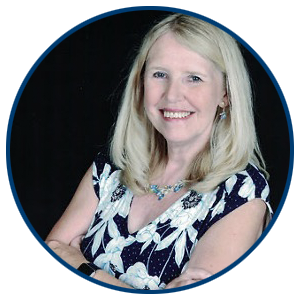 Dr. Brenda Jacobs is an Assistant Teaching Professor at Ontario Tech University in the Mitch and Leslie Frazer Faculty of Education. She teaches in the Bachelor of Education, Bachelor of Arts in Educational Studies, and Graduate programs. Brenda is currently the Principal Investigator for the Digital Play Framework for Early Learners research project funded by the Centre for Digital Innovation in Education (CDIE). Brenda completed her B.A. (Psychology) and B.Ed. (Primary/Junior) at the University of Western Ontario and her M.Ed., Graduate Diploma in Early Childhood Education, and PhD at York University. She is a member of the Ontario College of Teachers and the College of Early Childhood Educators. Brenda has taught elementary school-aged children in Oxford, England, Vancouver, British Columbia and Toronto, Ontario. Her book, Self-Regulation and Inquiry-Based Learning in the Primary Classroom, was published by Canadian Scholars Press in June 2022. Brenda received two university wide teaching awards in March 2024: The Ontario Tech University Learning Reimagined Award and the Mitch and Leslie Fraser Faculty of Education Student Choice Award for 2023.
Dr. Brenda Jacobs is an Assistant Teaching Professor at Ontario Tech University in the Mitch and Leslie Frazer Faculty of Education. She teaches in the Bachelor of Education, Bachelor of Arts in Educational Studies, and Graduate programs. Brenda is currently the Principal Investigator for the Digital Play Framework for Early Learners research project funded by the Centre for Digital Innovation in Education (CDIE). Brenda completed her B.A. (Psychology) and B.Ed. (Primary/Junior) at the University of Western Ontario and her M.Ed., Graduate Diploma in Early Childhood Education, and PhD at York University. She is a member of the Ontario College of Teachers and the College of Early Childhood Educators. Brenda has taught elementary school-aged children in Oxford, England, Vancouver, British Columbia and Toronto, Ontario. Her book, Self-Regulation and Inquiry-Based Learning in the Primary Classroom, was published by Canadian Scholars Press in June 2022. Brenda received two university wide teaching awards in March 2024: The Ontario Tech University Learning Reimagined Award and the Mitch and Leslie Fraser Faculty of Education Student Choice Award for 2023.
 Ingi Hong is a Master of Arts student in the Mitch and Leslie Frazer Faculty of Education at Ontario Tech University. Her research focuses on integrating digital media, tools, and technology into early learning environments to enrich young children's play and support the development of their digital literacy skills. Ingi is currently working as a GRA on the Digital Play Framework for Early Learners research project.
Ingi Hong is a Master of Arts student in the Mitch and Leslie Frazer Faculty of Education at Ontario Tech University. Her research focuses on integrating digital media, tools, and technology into early learning environments to enrich young children's play and support the development of their digital literacy skills. Ingi is currently working as a GRA on the Digital Play Framework for Early Learners research project.
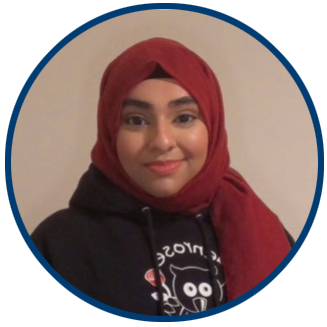 Hello! My name is Sara Hassan. I am currently a Master of Arts in Education student at Ontario Tech University. Dr. Brenda Jacobs is supervising my thesis research on understanding stress and power dynamics between OCTs and RECEs in kindergarten classrooms as well as my work on the CDIE Digital Play project. I have over ten years of experience working with children from birth to twelve years old in early childhood education and care settings. I have worked in the field as a Registered Early Childhood Educator for several years, and I now work as a professor in the School of Education at Sheridan College.
Hello! My name is Sara Hassan. I am currently a Master of Arts in Education student at Ontario Tech University. Dr. Brenda Jacobs is supervising my thesis research on understanding stress and power dynamics between OCTs and RECEs in kindergarten classrooms as well as my work on the CDIE Digital Play project. I have over ten years of experience working with children from birth to twelve years old in early childhood education and care settings. I have worked in the field as a Registered Early Childhood Educator for several years, and I now work as a professor in the School of Education at Sheridan College.
The Impact of Design Thinking-Based Mathematics Education
The impact of design thinking-based mathematics education will likely benefit educators, curriculum developers, and school administrators the most. Here’s why they should attend: Educators: They will gain practical insights into integrating design thinking methodologies into mathematics instruction, enhancing their ability to engage students and foster problem-finding skills and creativity in mathematics. Curriculum Developers: They can learn how to create materials that not only promote mathematical competency but also nurture creative thinking and relevance to real-world applications, aligning with current educational trends. Academic Administrators: They will understand the resources and support necessary to implement innovative pedagogical approaches effectively, potentially leading to improvements in student engagement and learning outcomes in mathematics.
To explore how design thinking can transform the way mathematics is taught, making it more engaging and relevant. Attendees will learn how this innovative approach can enhance students' ability to identify and frame real-world problems, foster creativity, and improve problem-solving skills.
During my session, participants will learn:
- The Principles of Design Thinking: How the core principles of design thinking—empathy, ideation, prototyping, and iteration—can be applied to mathematics education to enhance students' problem-solving and creative thinking abilities.
- Practical Strategies for Integrating Design Thinking: How to incorporate design thinking into mathematics instruction to foster more engaging, student-centered learning experiences that connect math concepts to real-world applications.
- Assessment of Problem-Finding and Mathematical Creativity: Methods for assessing students' problem-finding skills and mathematical creativity, along with tools for evaluating student portfolios and performance in real-world problem-solving tasks.
- Benefits for Students: How students can benefit from a curriculum that encourages them to identify, frame, and solve real-world mathematical problems while developing critical skills like creativity, critical thinking, and collaboration.
- Curriculum Development Insights: Strategies for curriculum developers to design materials that promote both mathematical competency and creativity, ensuring that students are prepared for the challenges of modern, real-world problem-solving.
- Supporting Innovation in Education: How administrators can support and implement design thinking in mathematics education, including necessary resources and potential outcomes such as improved student engagement and learning outcomes. Overall, participants will gain practical tools and strategies to implement design thinking in their own educational settings, whether in the classroom, curriculum design, or administrative support.
- Time: 2:30 pm - 3:0O pm
- Format: Presentation
- Theme: Pedagogical Innovation
- Audience & Subject: Whether you are an educator looking to refresh your teaching methods, a curriculum developer aiming to create more engaging materials, or an administrator seeking to support innovative educational practices, this session will provide valuable insights into a progressive teaching methodology that prepares students for the challenges of the future. Attendees will leave with practical strategies they can apply in their own teaching or institutional planning.
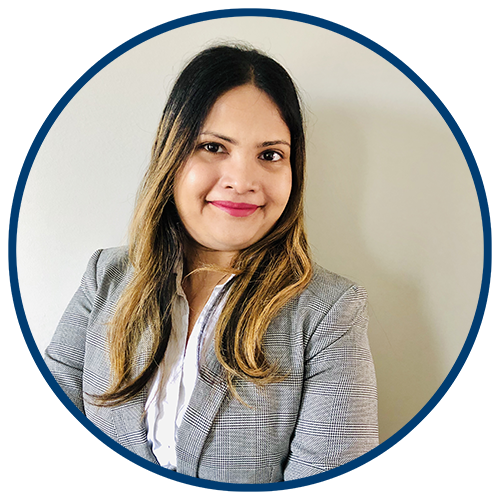 Prof. Fatima N. Nisham (She/Her) PhD, MBA, BSc.
Prof. Fatima N. Nisham (She/Her) PhD, MBA, BSc.
Professor of Financial Management, George Brown College
Prof. Fatima Nisham specializes in financial and business management, focusing on the integration of design thinking into undergraduate mathematics education to enhance problem-solving and creativity. Her research examines cross-cultural experiential learning in STEM disciplines, advocating for innovative pedagogical approaches that increase student engagement. She has published in The Bloomsbury Handbook Series on Leadership and Ethics and is committed to creating student-centered learning environments that foster critical thinking and creativity
Ctrl+Alt+Teach: How Educators Can Lead the Way in Ethical AI Use
We will focus on exploring tools for reducing administrative tasks, enhancing feedback quality, streamlining lesson planning, and improving digital literacy. Attendees will gain practical insights to integrate AI effectively in education.
AI can be a valuable tool for educators, not a replacement. This session will explore how AI can reduce workload, enhance feedback, and support ethical use, giving educators practical strategies to integrate AI without compromising their role.
Participants will engage in interactive AI tool demos, analyze case studies, and join guided discussions. Together, we’ll explore AI’s strengths and limitations, exchange insights, and develop practical strategies for professional use.
- Session Time: 3:00 pm - 4:0O pm
- Format: Round Table Discussion
- Themes: Teaching for Innovation, Pedagogical Innovation
- Audience & Subject: The session will explore how AI tools can reduce teacher workload, enhance feedback, and support ethical AI use, helping educators, administrators, and researchers improve efficiency in teaching and learning.
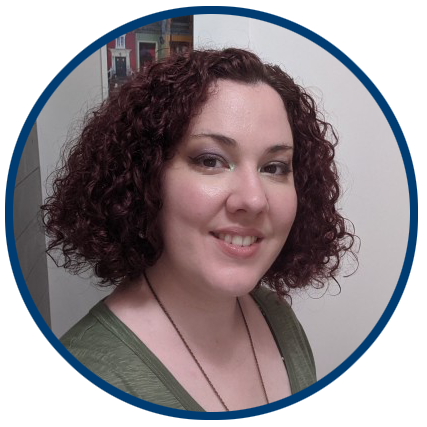 Natalie Fiannaca is a PhD student attending Lakehead’s Joint PhD in Educational Studies with Brock and Windsor. Her research interests within this field include teacher confidence, social justice, emotional regulation and arts-based research methods. She is currently researching the intersection of AI and media literacy in education.
Natalie Fiannaca is a PhD student attending Lakehead’s Joint PhD in Educational Studies with Brock and Windsor. Her research interests within this field include teacher confidence, social justice, emotional regulation and arts-based research methods. She is currently researching the intersection of AI and media literacy in education.
Open Educational Resources: A Cost-Effective Digital Innovation Empowering People with Disabilities
Open Educational Resources can help bridge educational gaps for both learners with and without disabilities. There is a need to spread knowledge and skills related to OER and to create inclusive learning spaces where all learners, regardless of ability, can actively collaborate and produce innovative OER content that benefits global learning communities.
I will raise some questions that will encourage participants to reflect on their digital learning and teaching practices.
Good practices in the use of Open Education Resources (OER) for or by individuals with disabilities, while also exploring barriers to their effective implementation.
- Session Time: 3:00 pm - 4:0O pm
- Format: Round Table Discussion
- Themes: Digital Innovation, Teaching for Innovation
- Audience & Subject: The presentation is beneficial for educators, learners, and policymakers seeking innovative solutions to educational challenges. OER supports the educational empowerment of both people with and without disabilities. It reduces costs and allows for collaboration in the innovative production of creative resources.
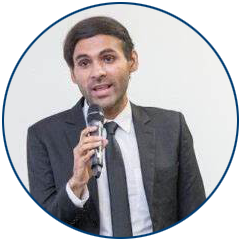 Dr. Munir Moosa Saadruddin is a Global Heumann Fellow at the World Institute on Disability, USA. He is a university teacher, researcher, and educational theorist. His areas of interest include low-cost technology, disability education, human rights education, and Open Educational Resources. He has received several fellowships, including the Salem State University Honorary Virtual Fellowship, Charles Wallace Trust Fellowship, and Georg Arnhold Fellowship. Additionally, he has served as a visiting academic scholar at Humboldt University in Berlin and the University of California, Berkeley. Munir has delivered guest lectures at various global institutions, including The Open University (UK), the School of Education at UC Berkeley, the Adult School Berkeley, Northampton University (UK), and Leuphana University of Lüneburg (Germany).
Dr. Munir Moosa Saadruddin is a Global Heumann Fellow at the World Institute on Disability, USA. He is a university teacher, researcher, and educational theorist. His areas of interest include low-cost technology, disability education, human rights education, and Open Educational Resources. He has received several fellowships, including the Salem State University Honorary Virtual Fellowship, Charles Wallace Trust Fellowship, and Georg Arnhold Fellowship. Additionally, he has served as a visiting academic scholar at Humboldt University in Berlin and the University of California, Berkeley. Munir has delivered guest lectures at various global institutions, including The Open University (UK), the School of Education at UC Berkeley, the Adult School Berkeley, Northampton University (UK), and Leuphana University of Lüneburg (Germany).
Meet our Conference Room Moderators
Hyflex - Room 213: Dr. Kenneth Gymerah
 Dr. Kenneth Gyamerah is an Assistant Professor at the Mitch and Leslie Frazer Faculty of Education. His research interests include equity, access, and representation of Black, Indigenous and racialized youth in STEM/STEAM education, decolonizing education, anti-colonial education, teacher education, comparative and international education, African Indigenous knowledge systems, curriculum and educational policy. Dr. Gyamerah’s research also seeks to amplify and center the voices, knowledges, identities and experiences of Black, Indigenous, and racialized youth in both K-12 and higher education. He is a Chevening Scholar and holds a BEd from the University of Education, Winneba (Ghana), an MSc in Education Policy from the University of Bristol (UK), and a PhD in Education from Queen's University. Before joining Ontario Tech, Dr. Gyamerah worked with the Toronto District School Board (TDSB) as a research coordinator. At the TDSB, he led the Anti-Hate and Anti-Racism research portfolio.
Dr. Kenneth Gyamerah is an Assistant Professor at the Mitch and Leslie Frazer Faculty of Education. His research interests include equity, access, and representation of Black, Indigenous and racialized youth in STEM/STEAM education, decolonizing education, anti-colonial education, teacher education, comparative and international education, African Indigenous knowledge systems, curriculum and educational policy. Dr. Gyamerah’s research also seeks to amplify and center the voices, knowledges, identities and experiences of Black, Indigenous, and racialized youth in both K-12 and higher education. He is a Chevening Scholar and holds a BEd from the University of Education, Winneba (Ghana), an MSc in Education Policy from the University of Bristol (UK), and a PhD in Education from Queen's University. Before joining Ontario Tech, Dr. Gyamerah worked with the Toronto District School Board (TDSB) as a research coordinator. At the TDSB, he led the Anti-Hate and Anti-Racism research portfolio.

